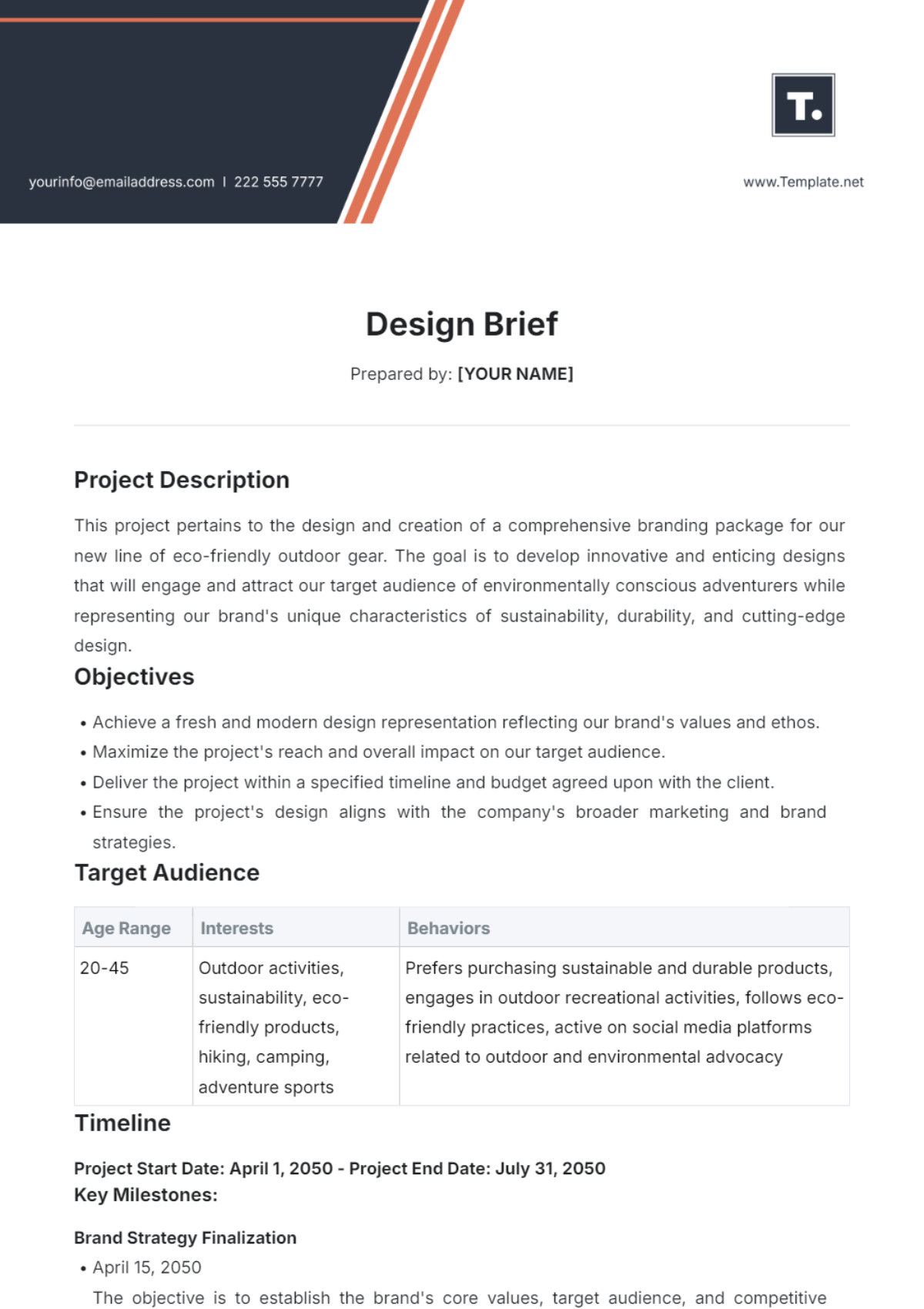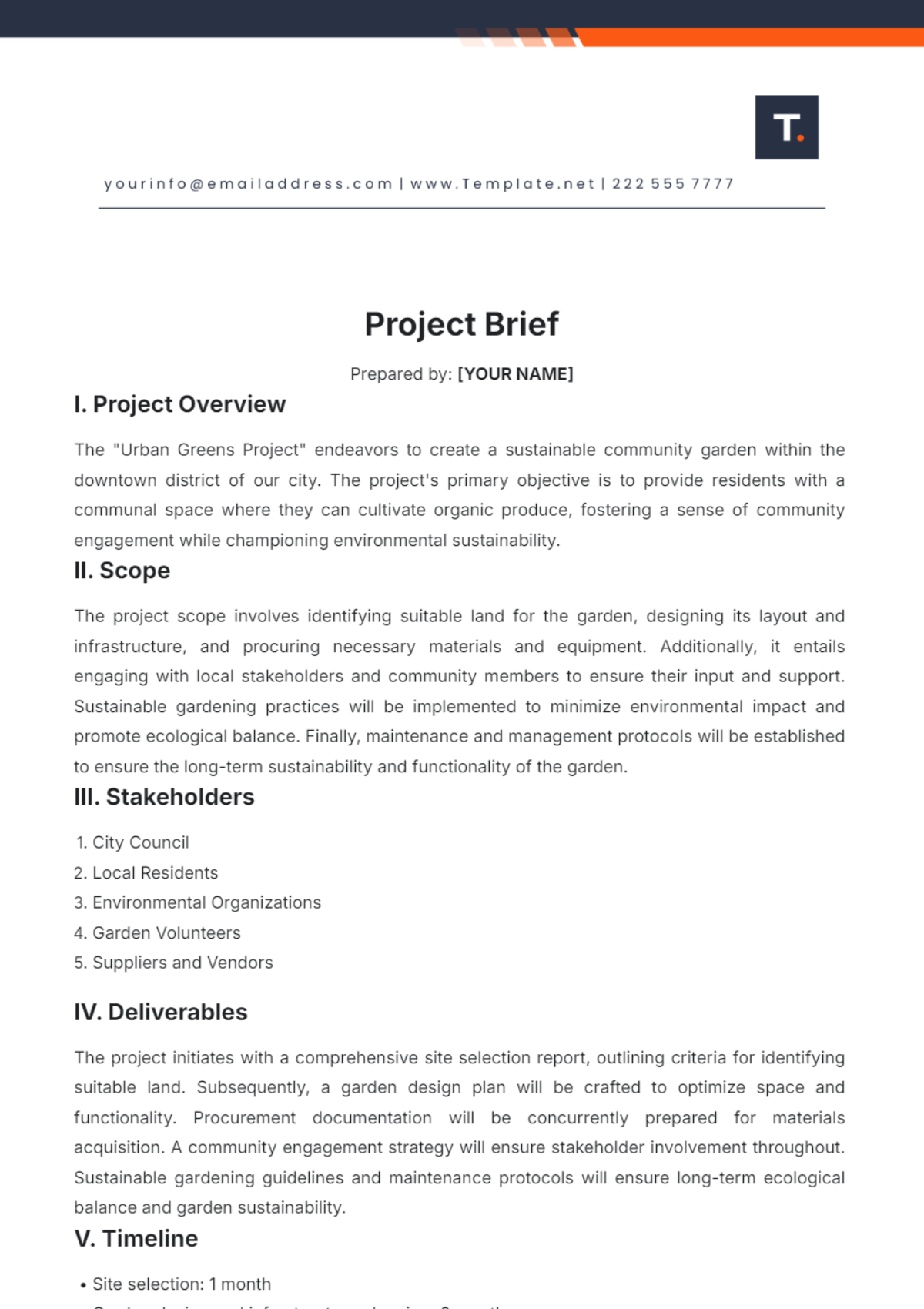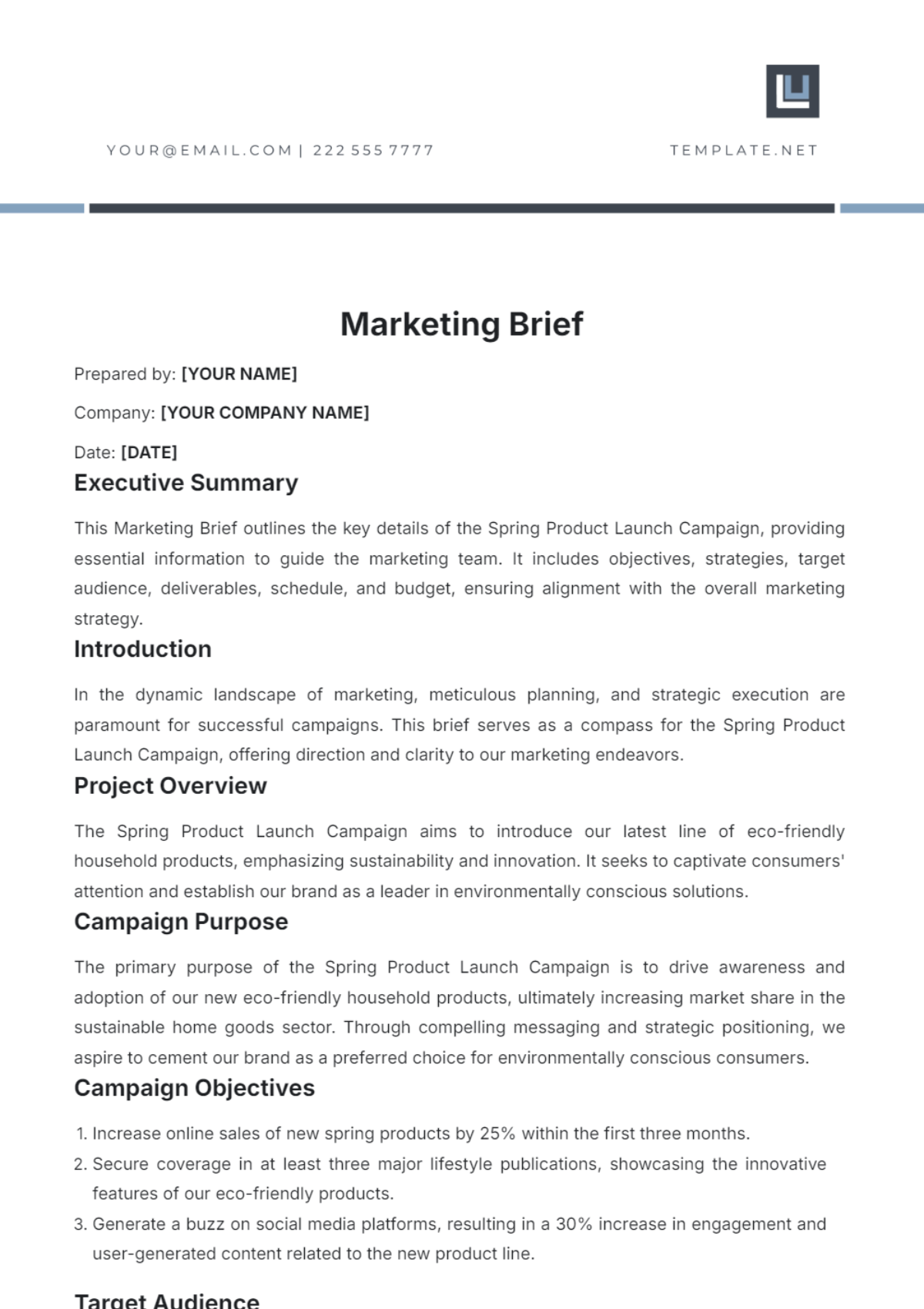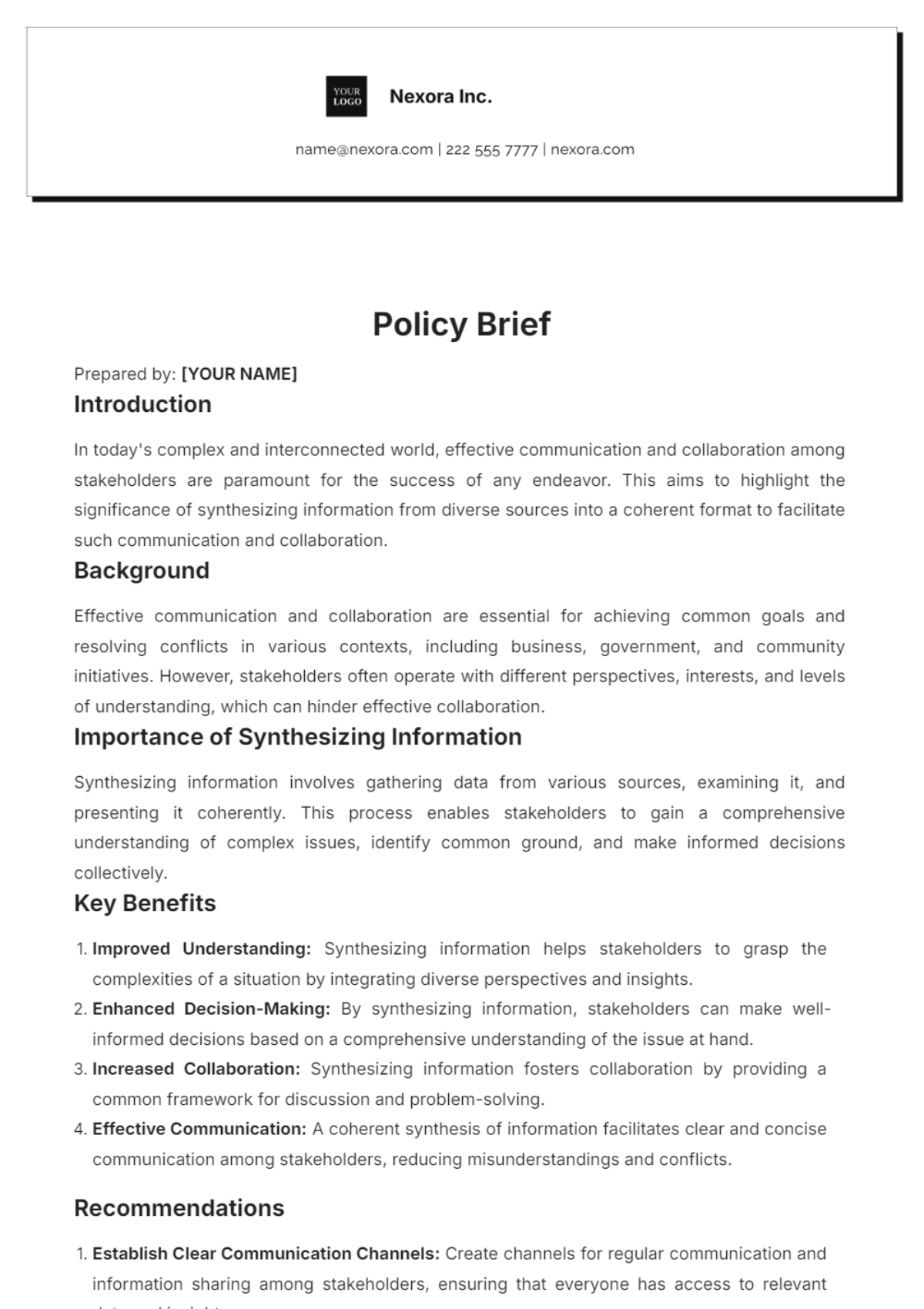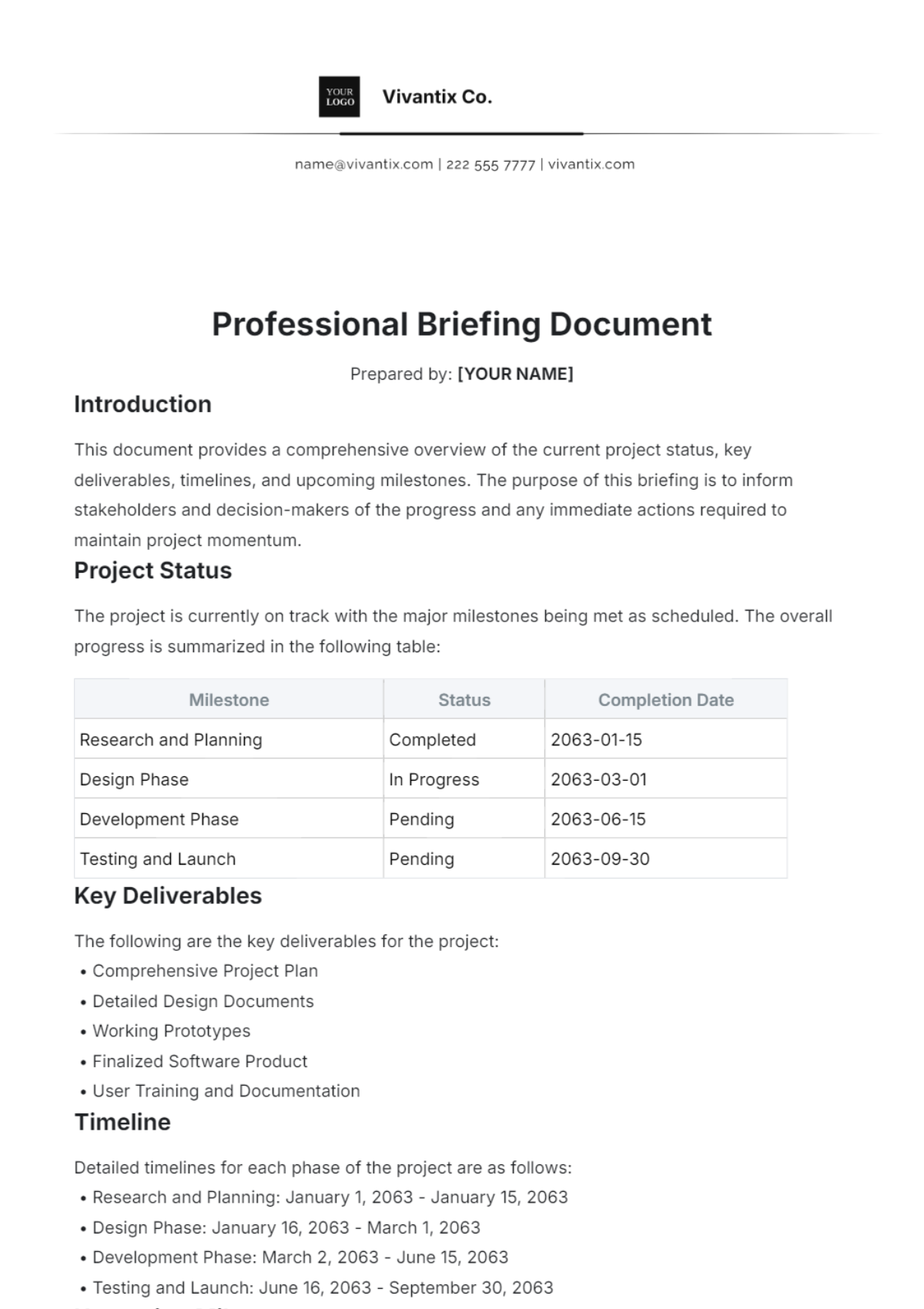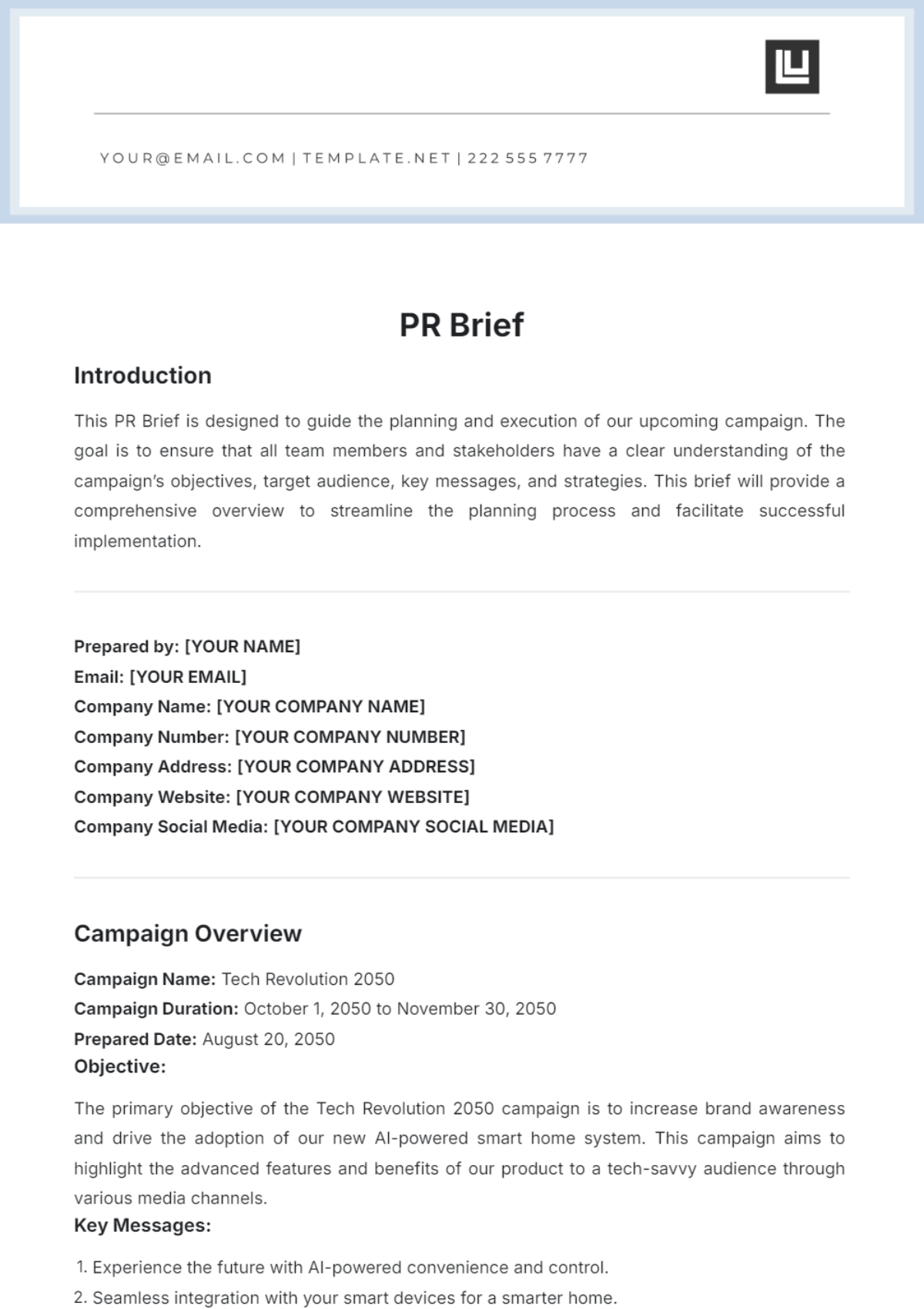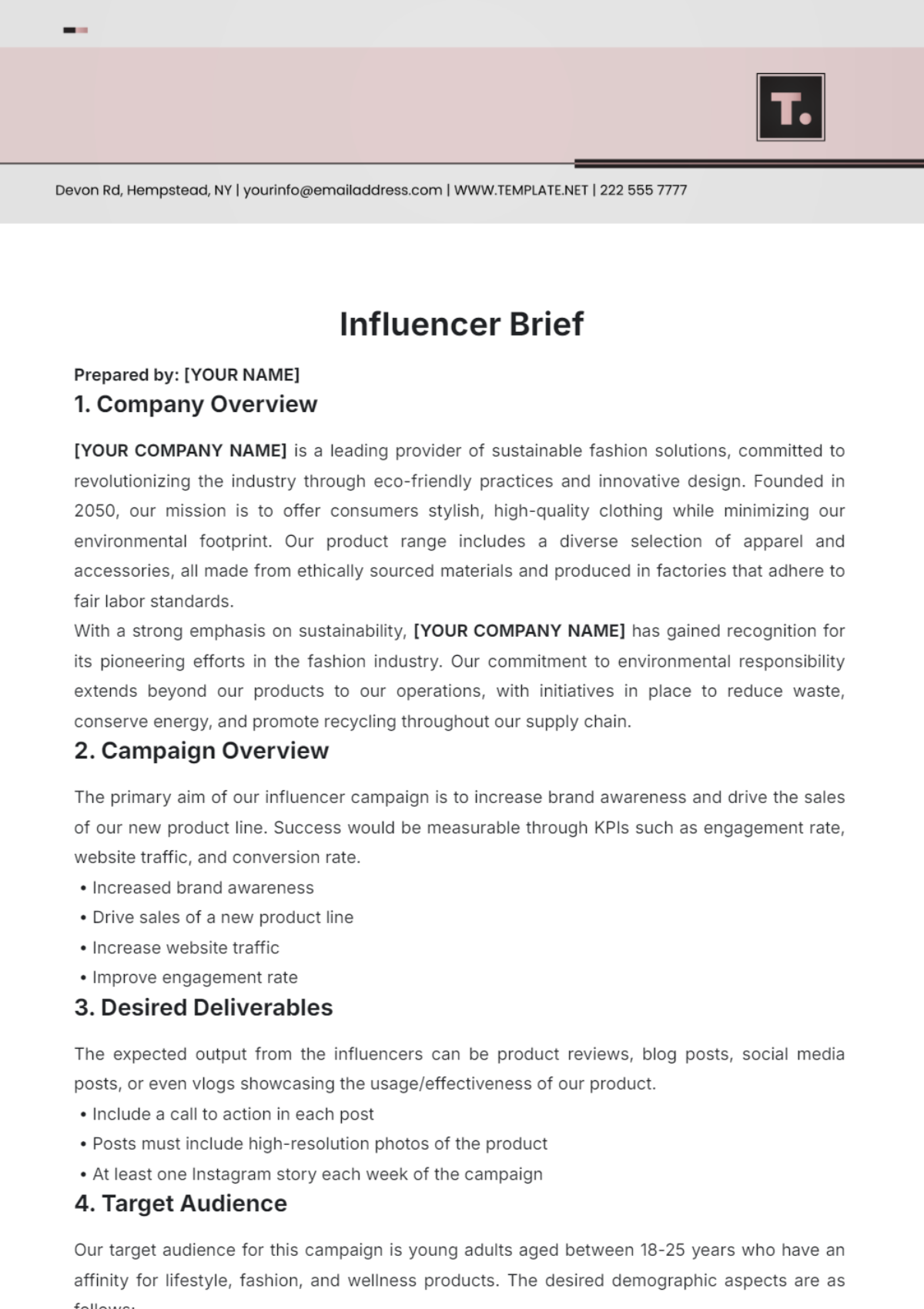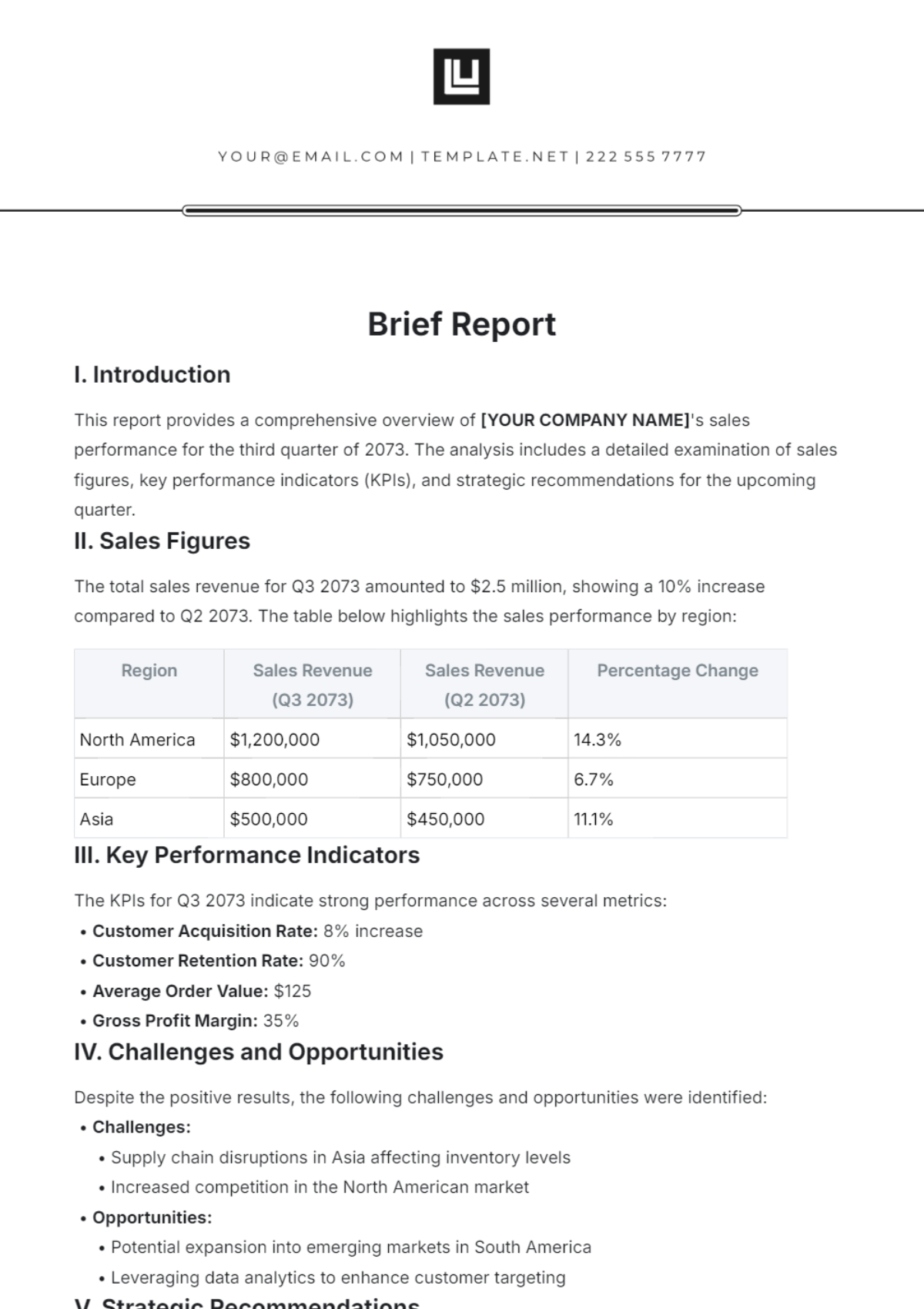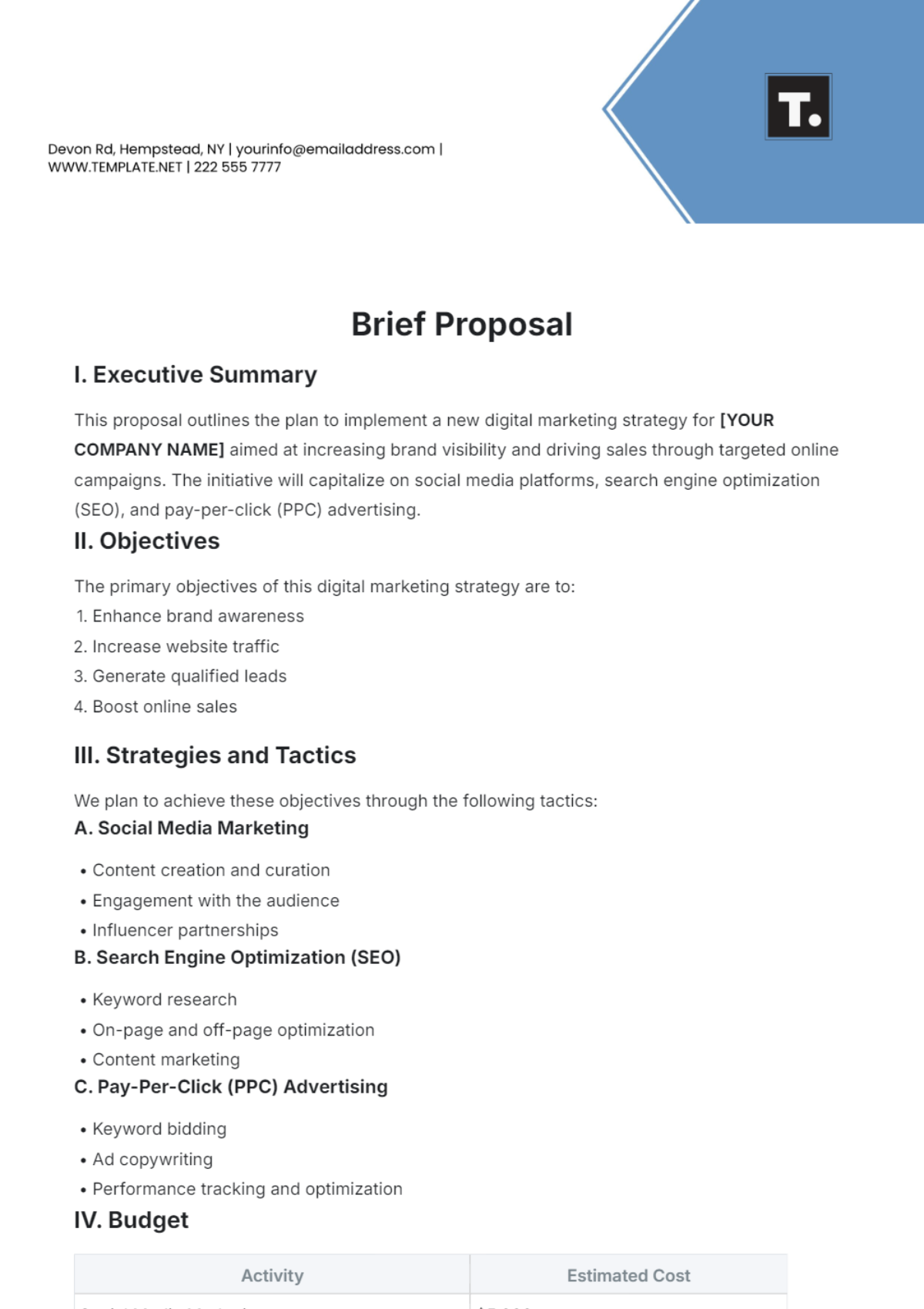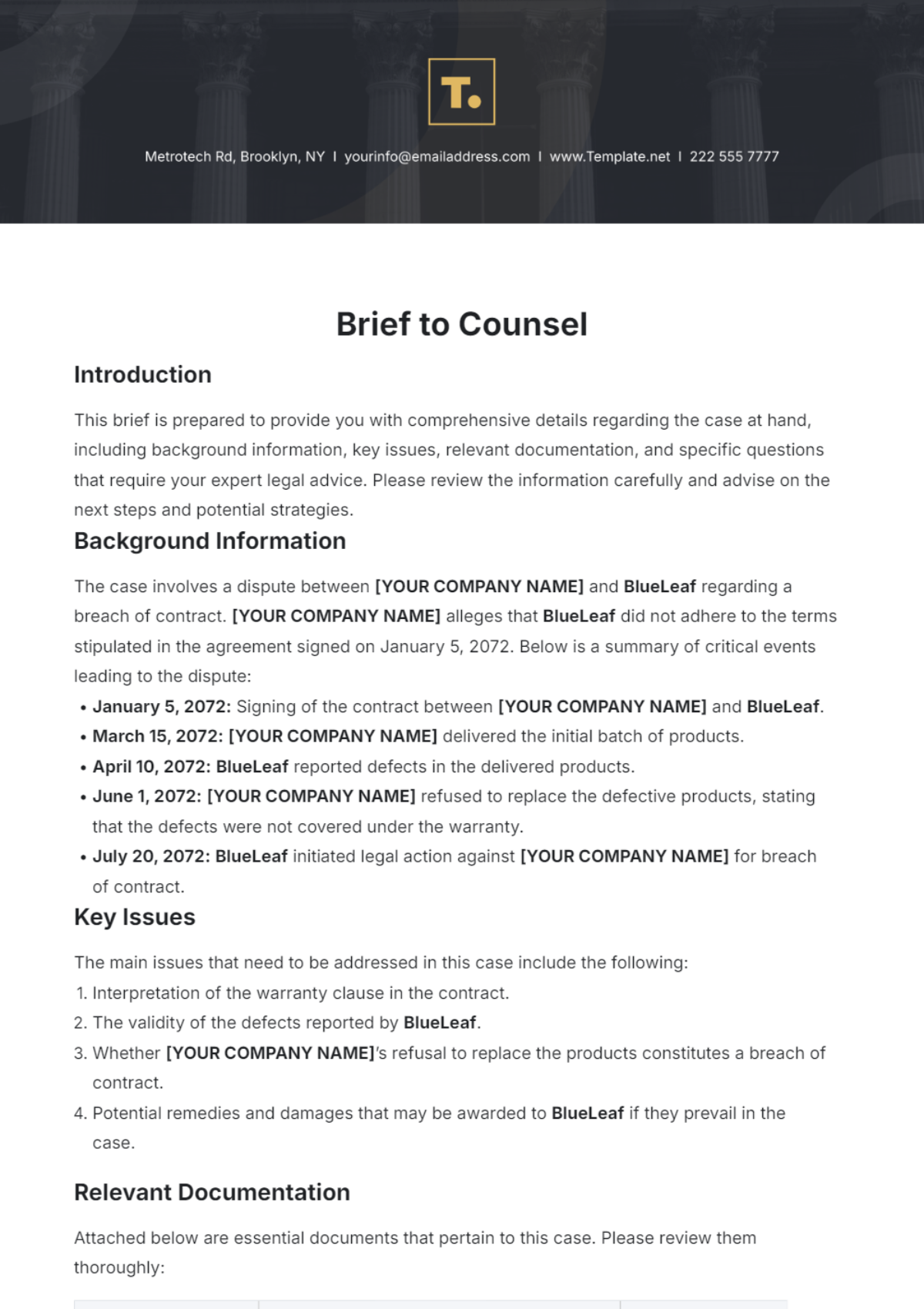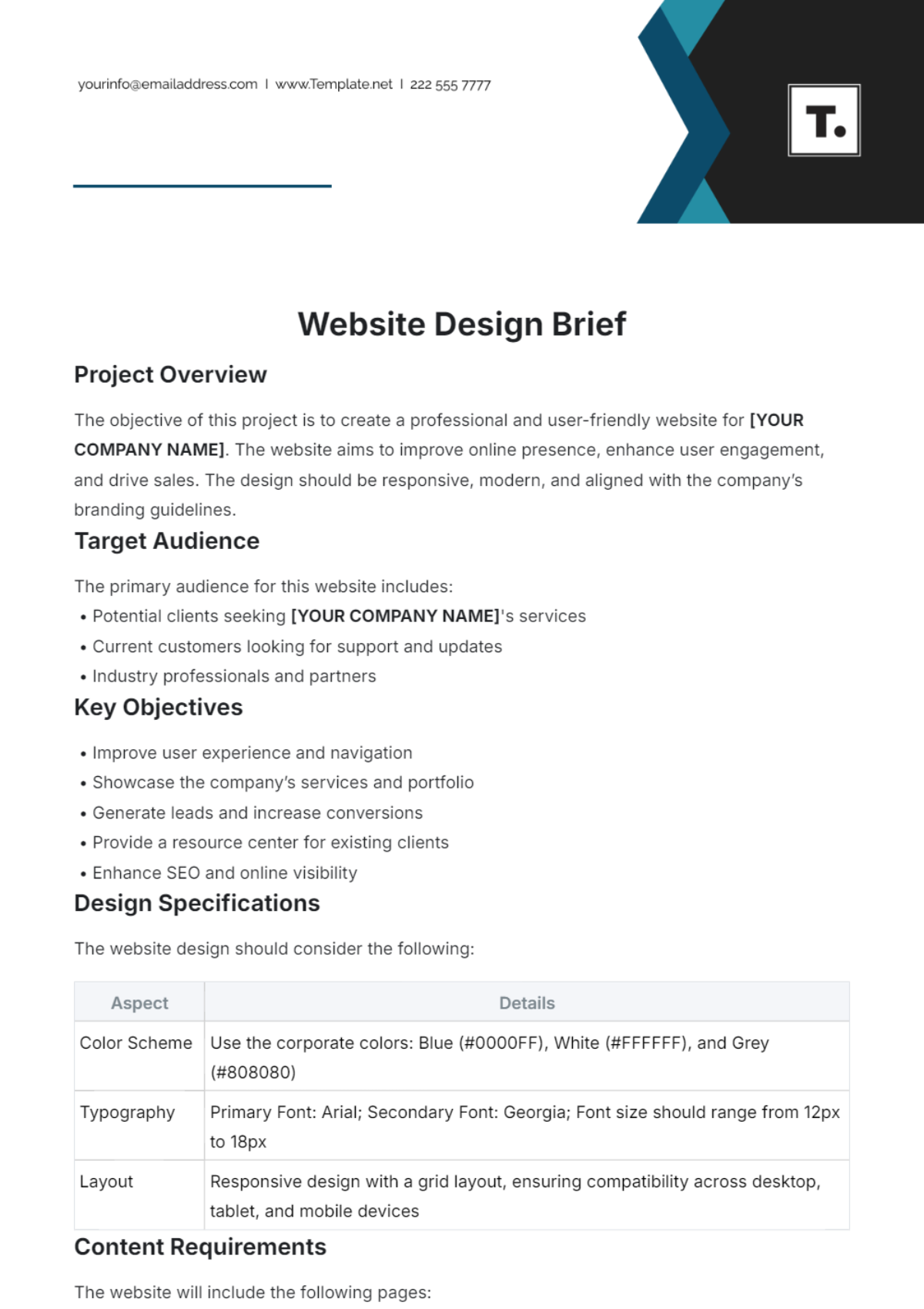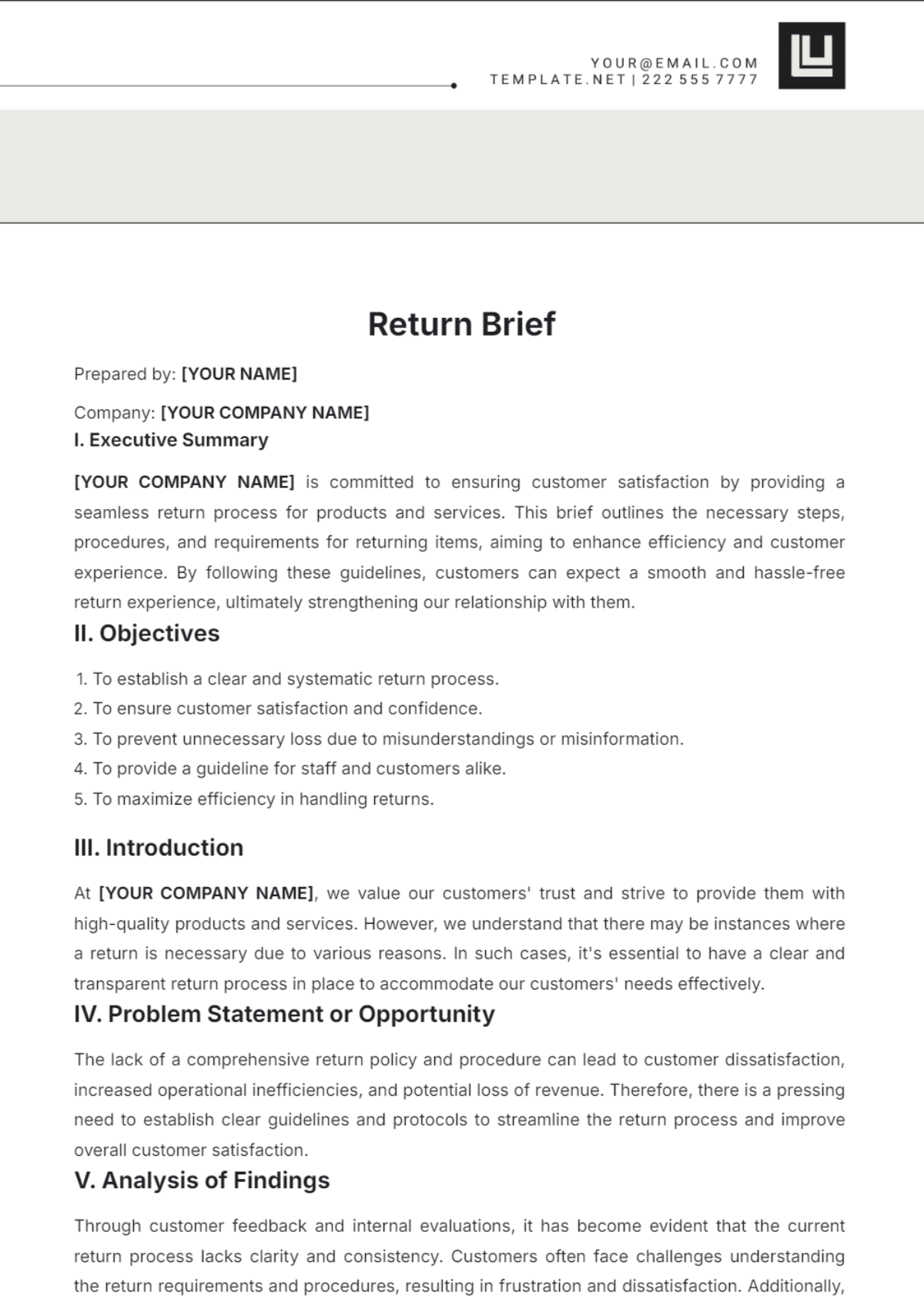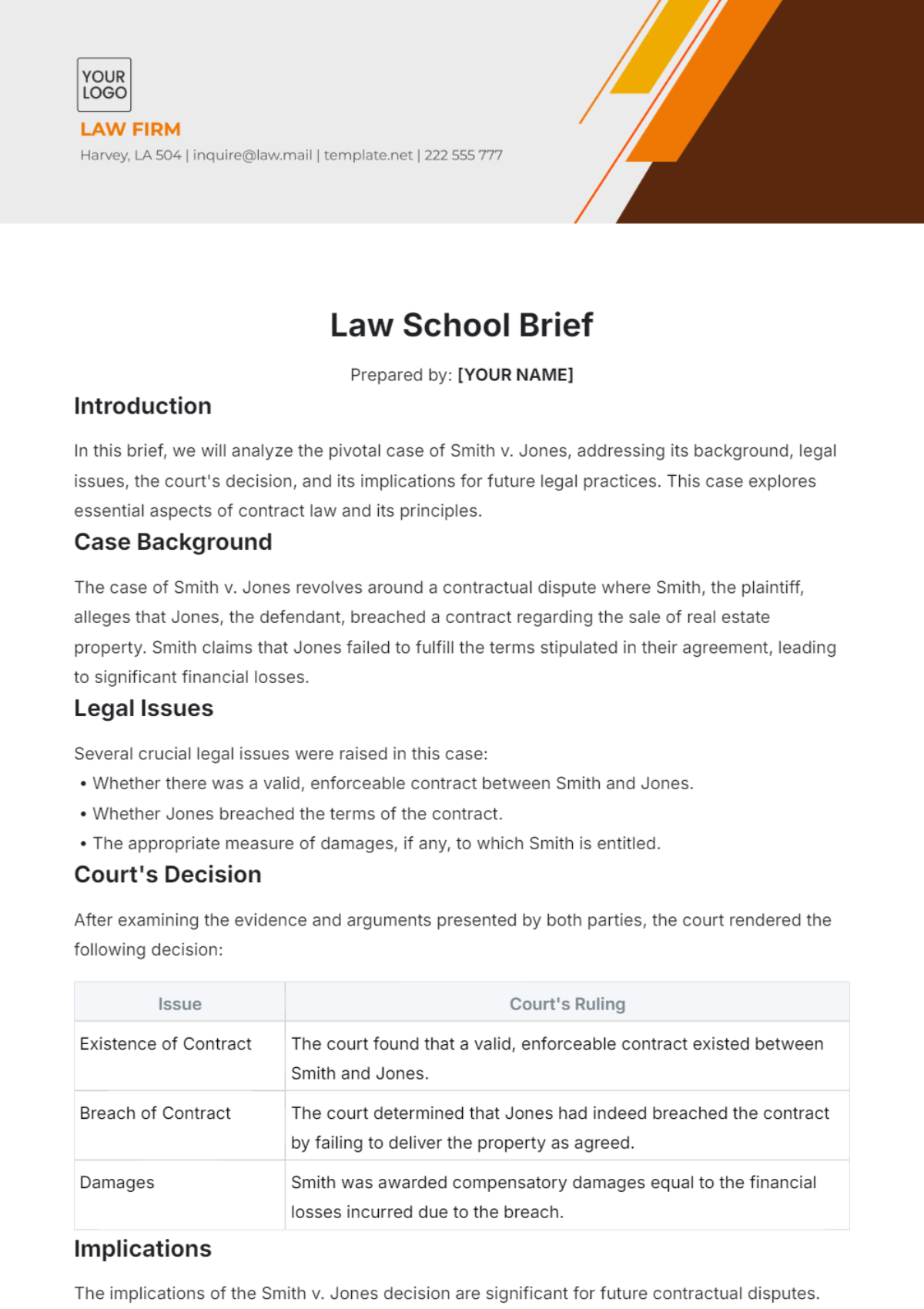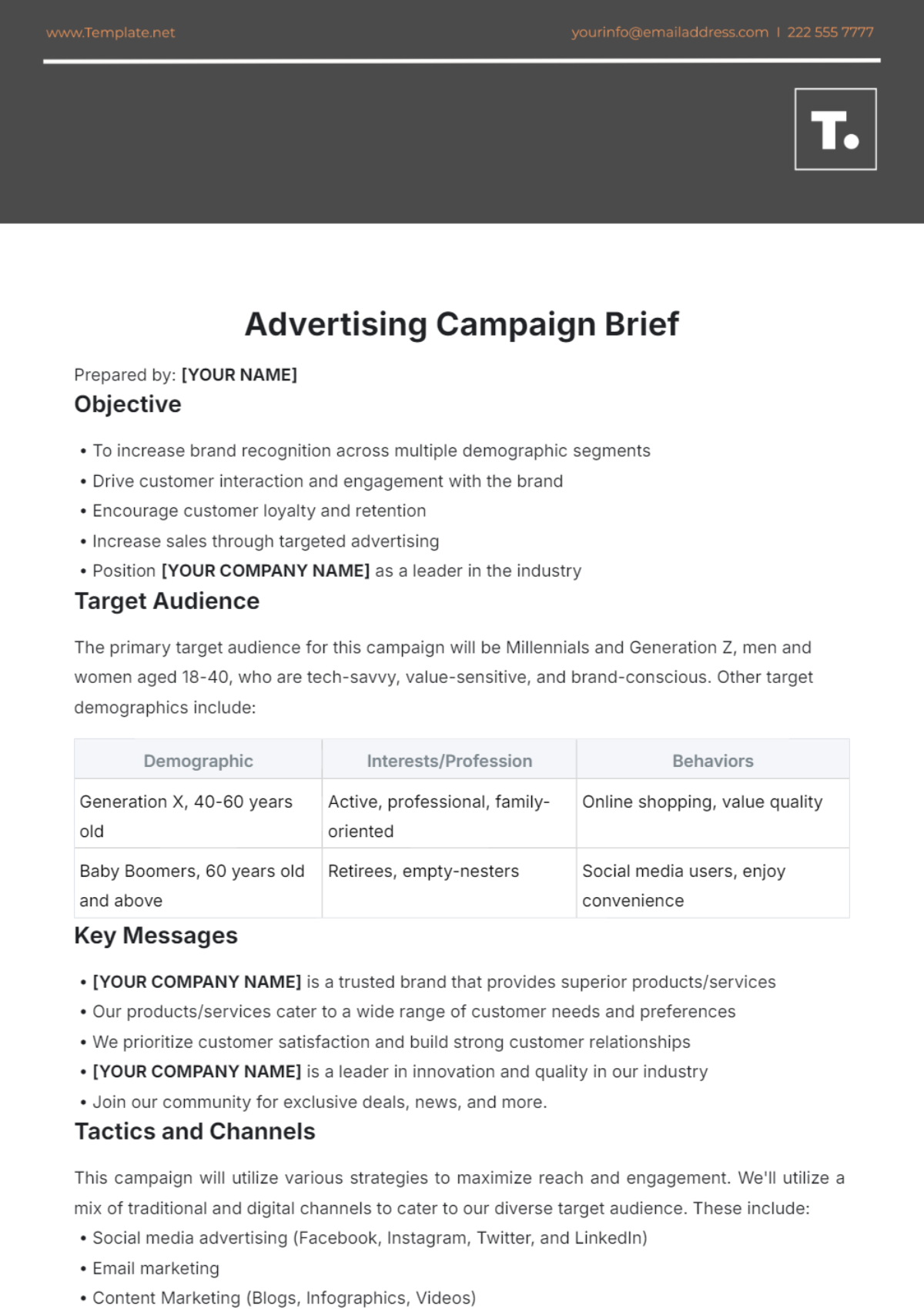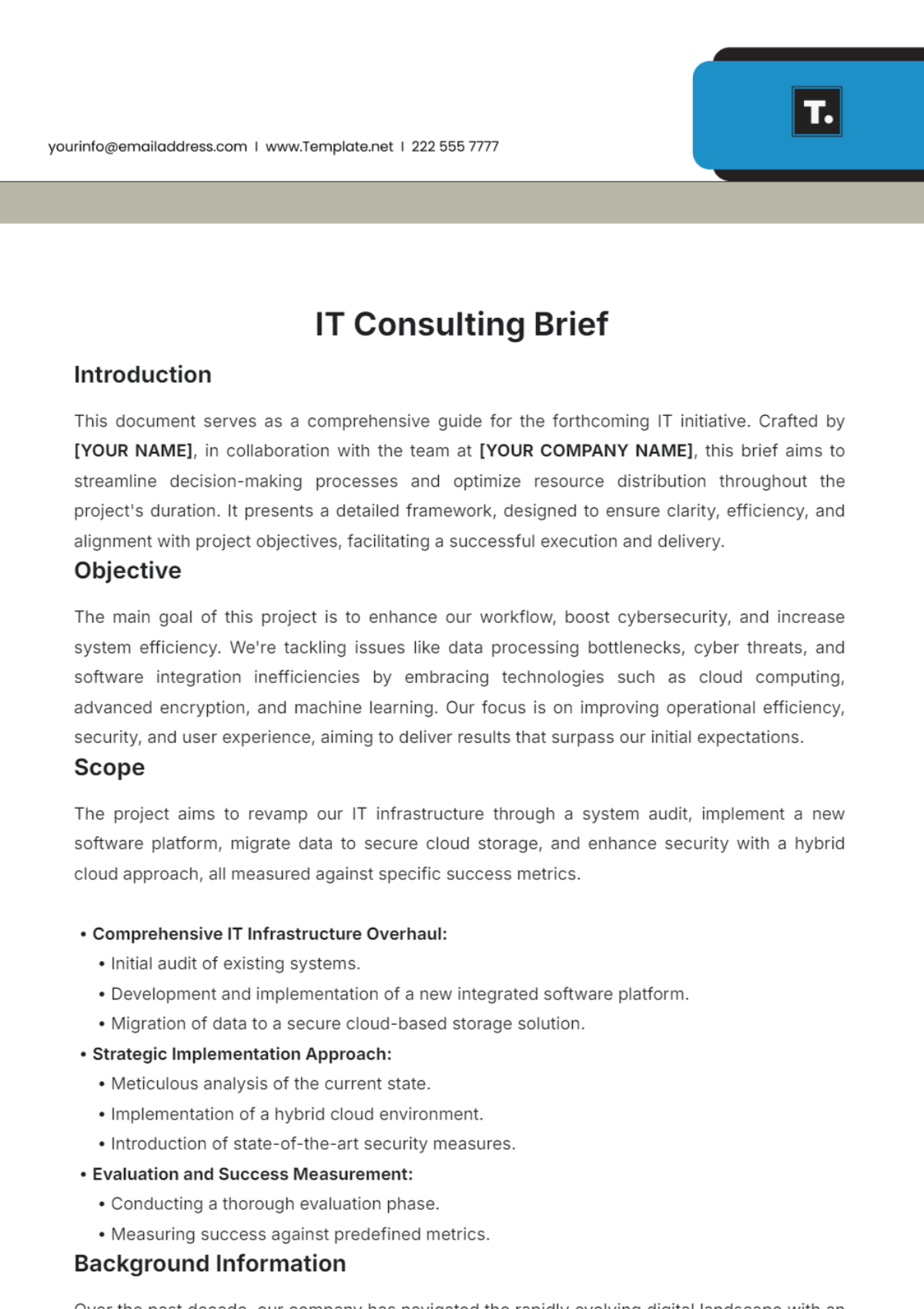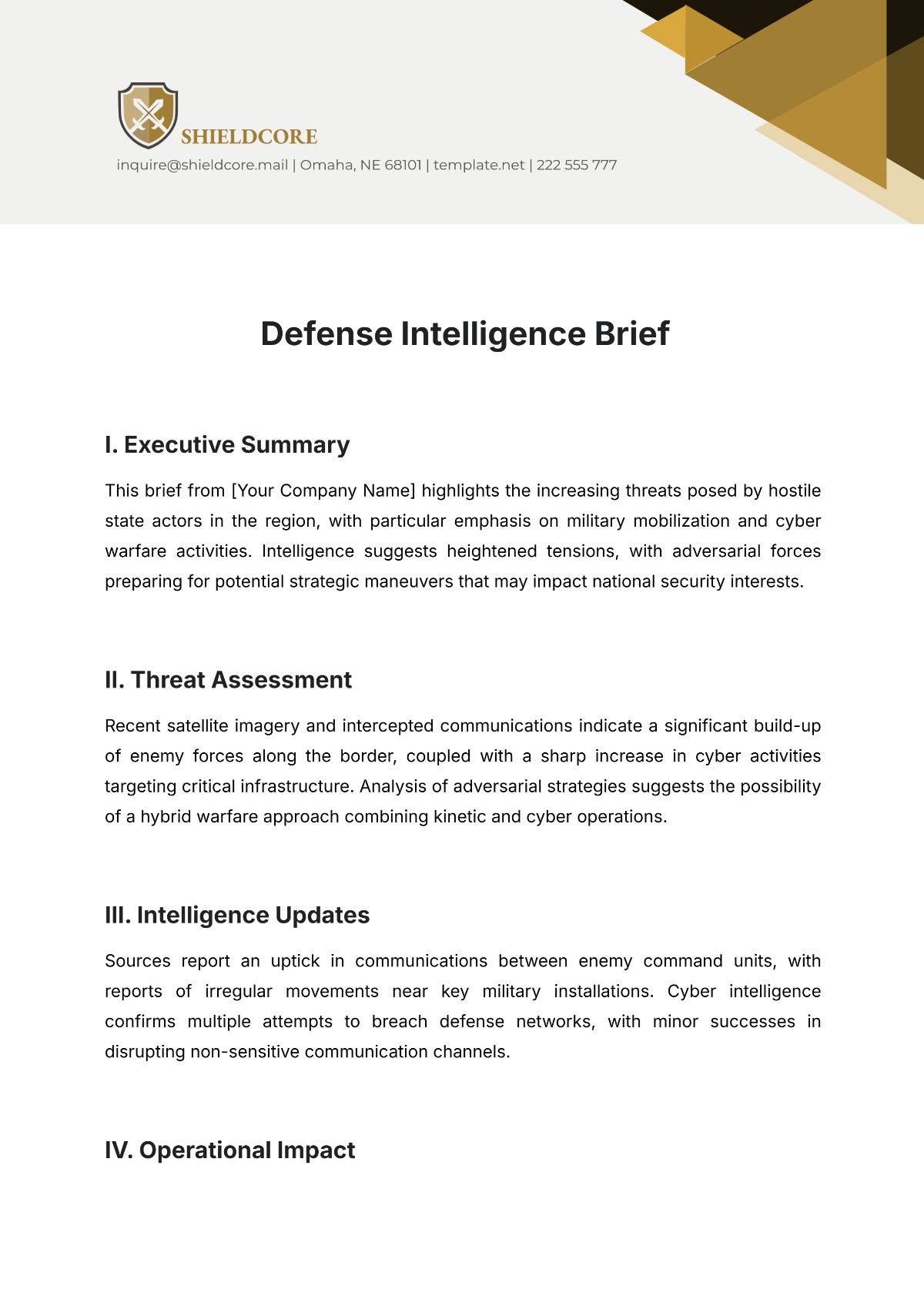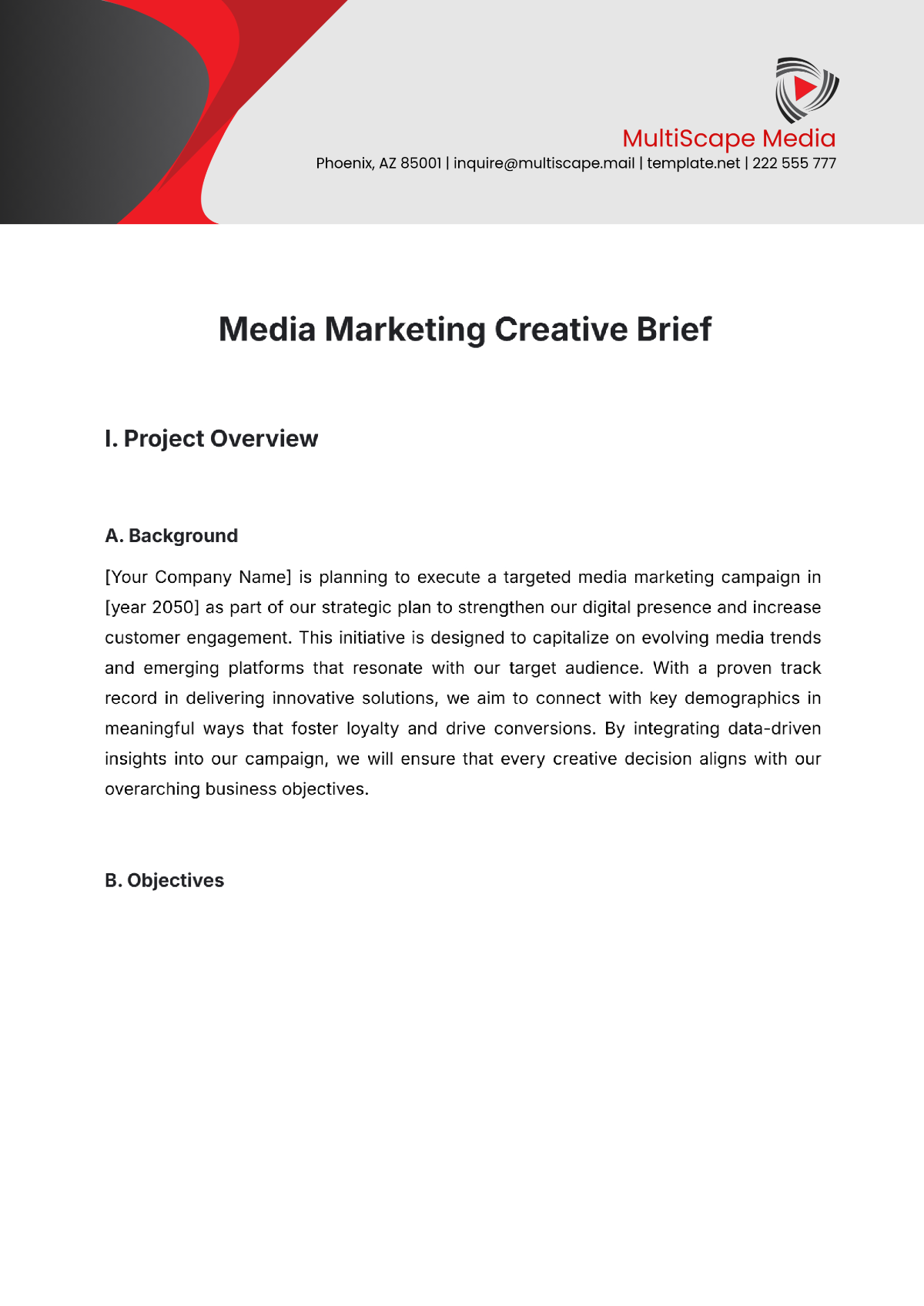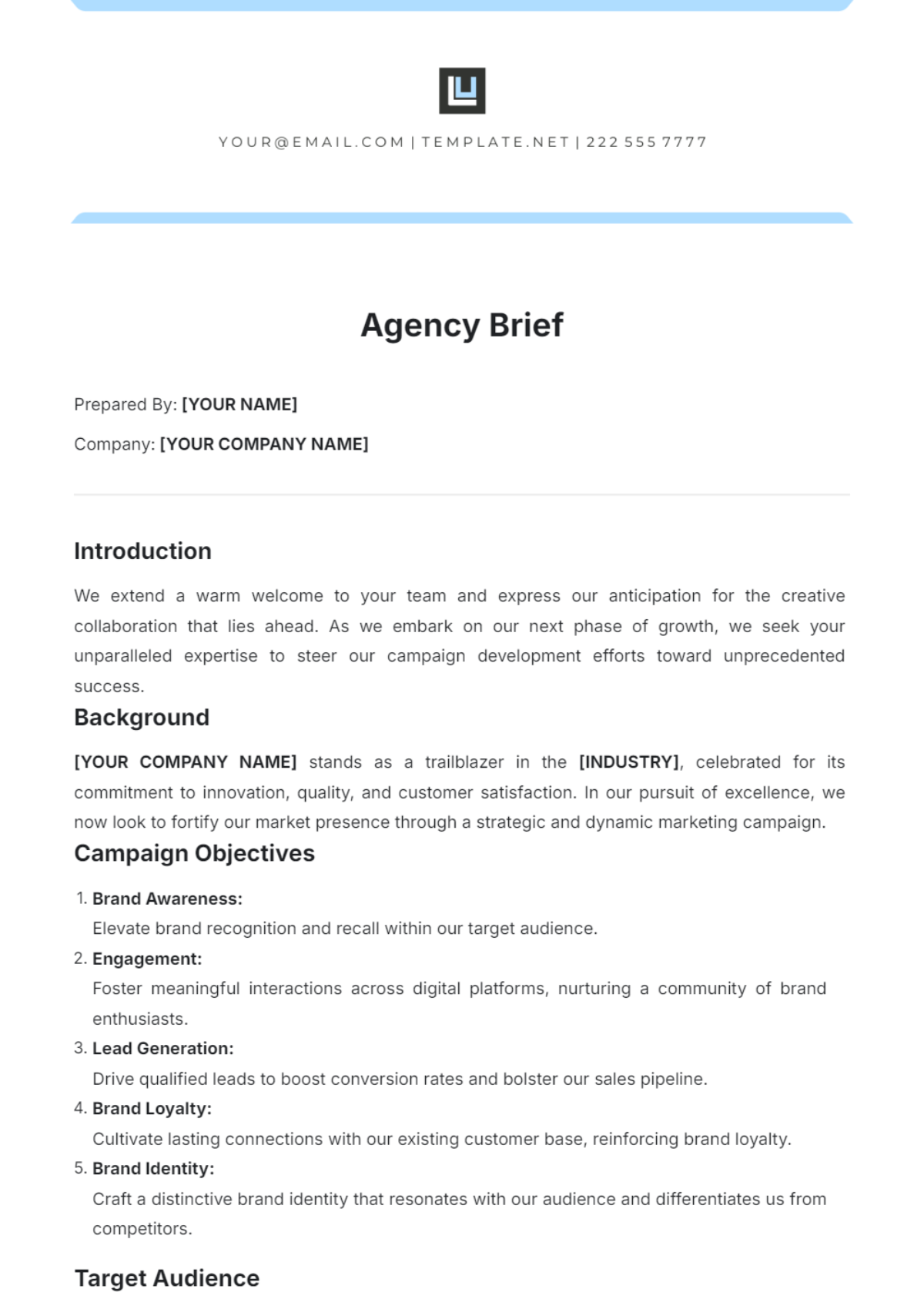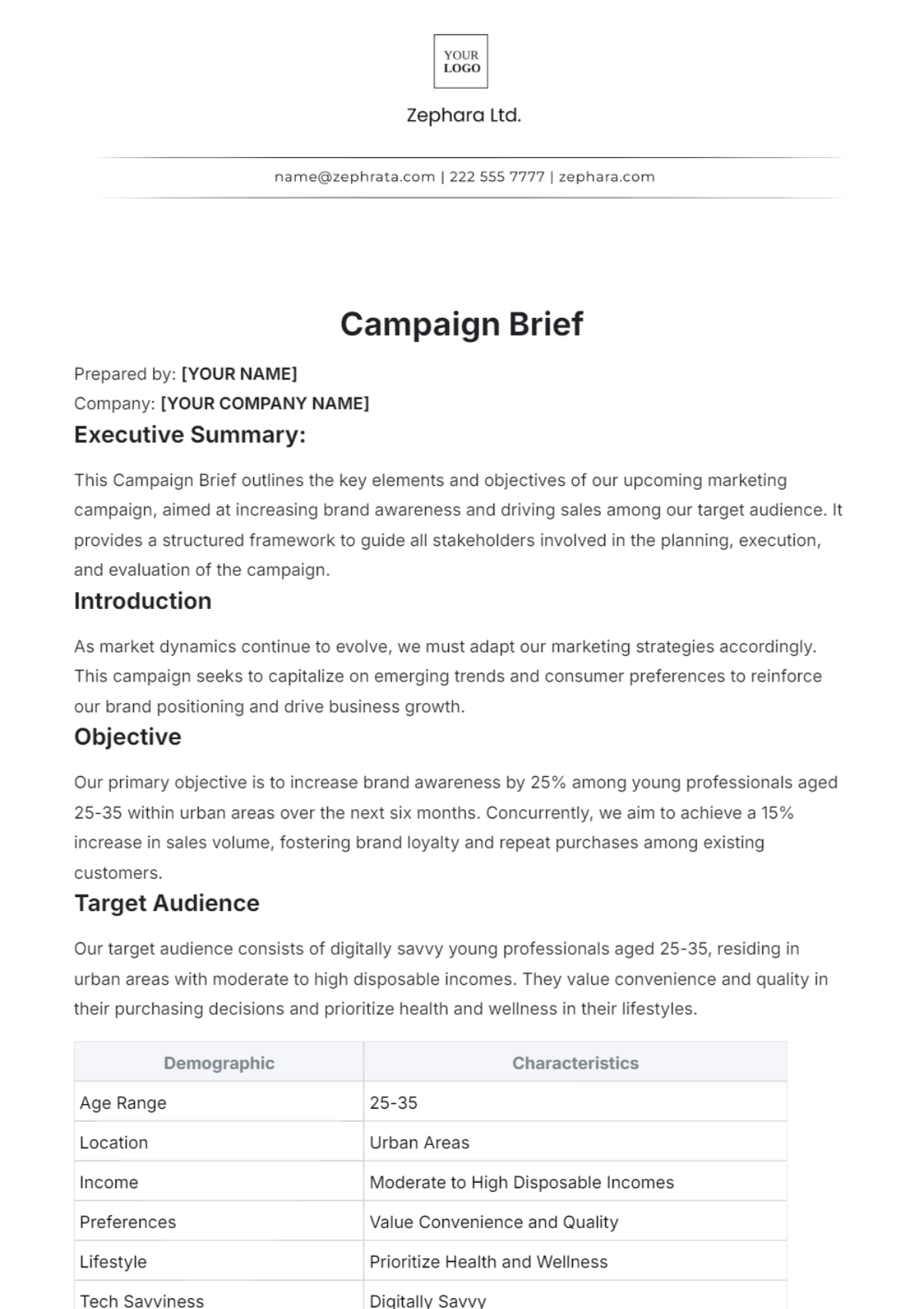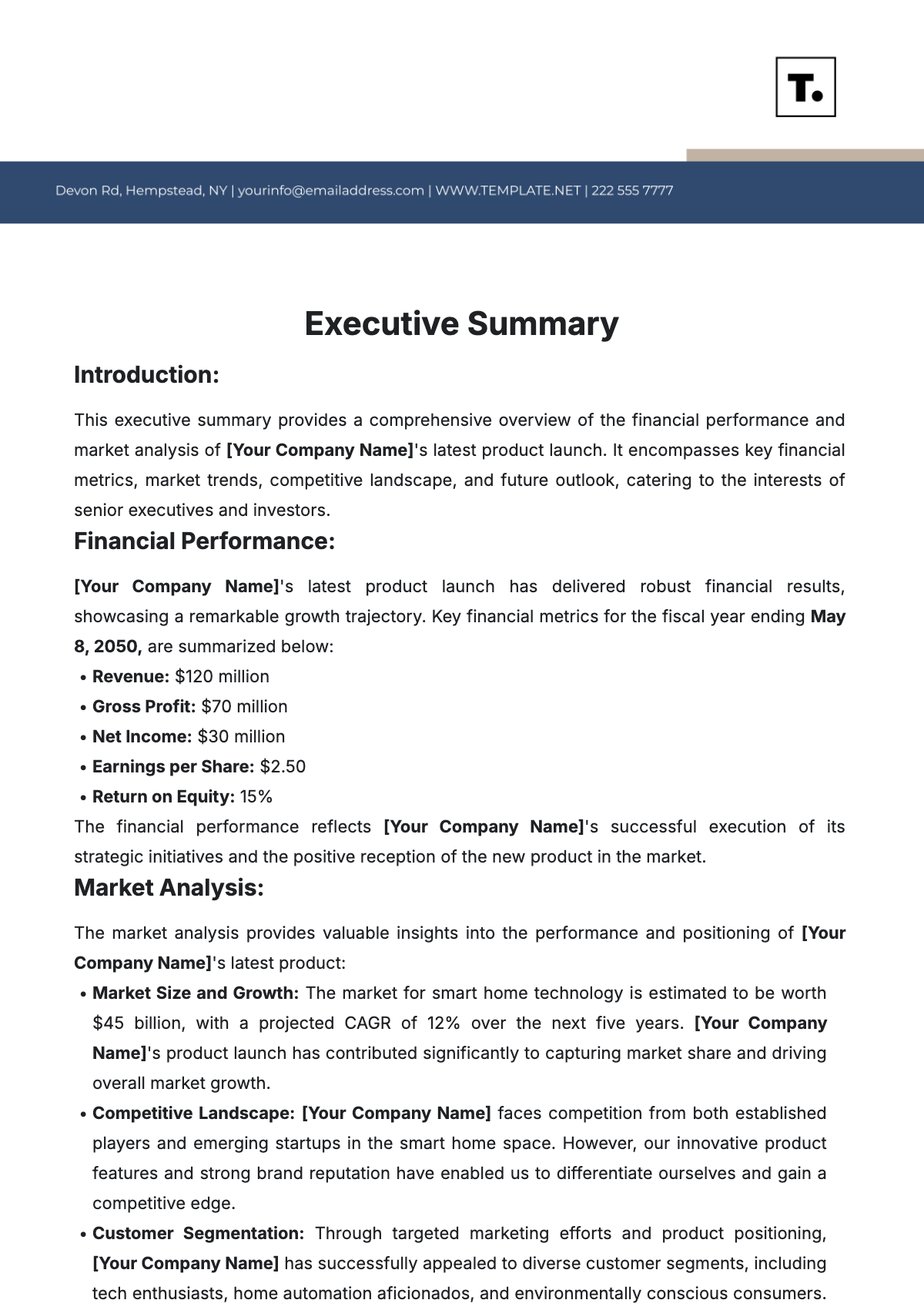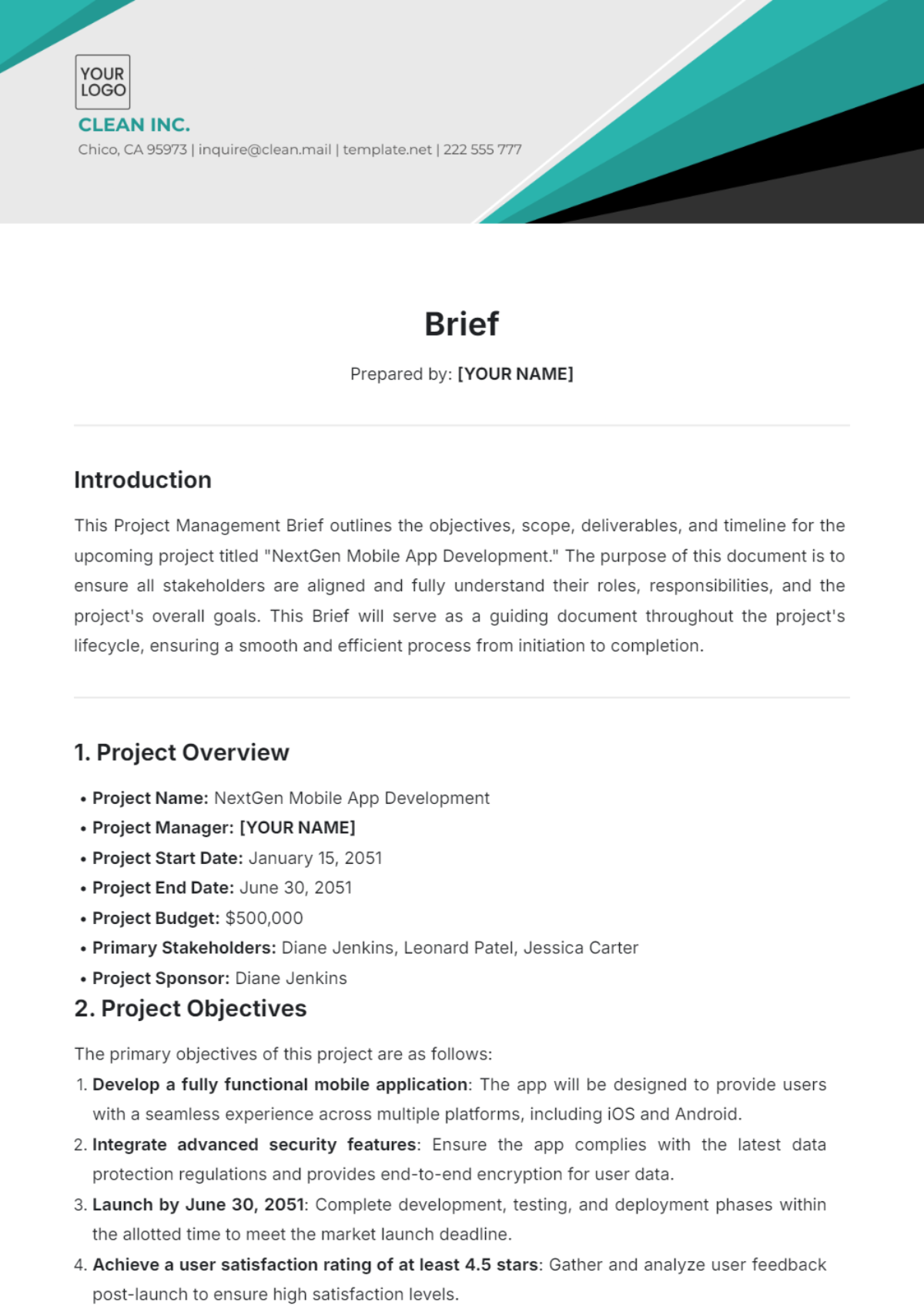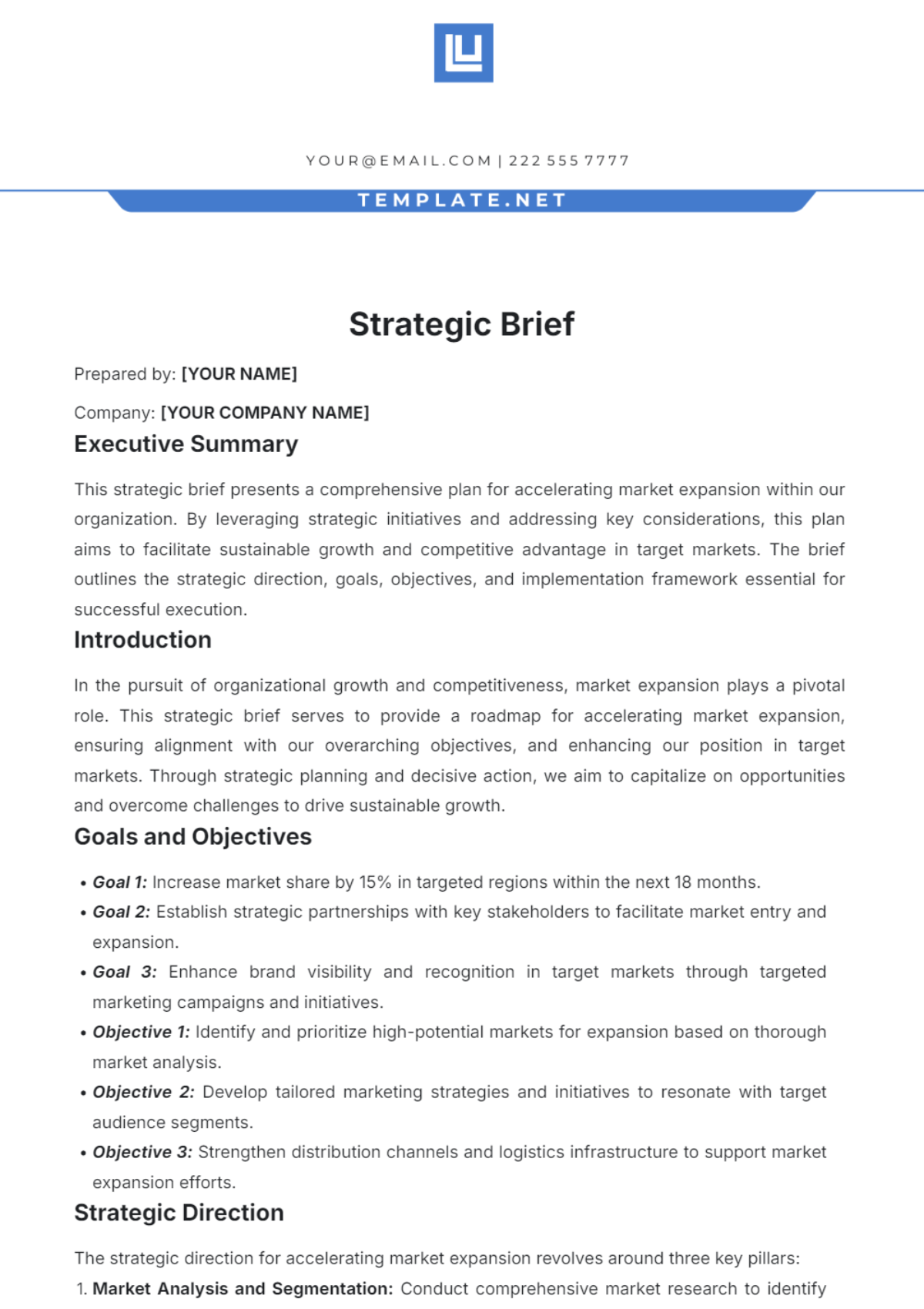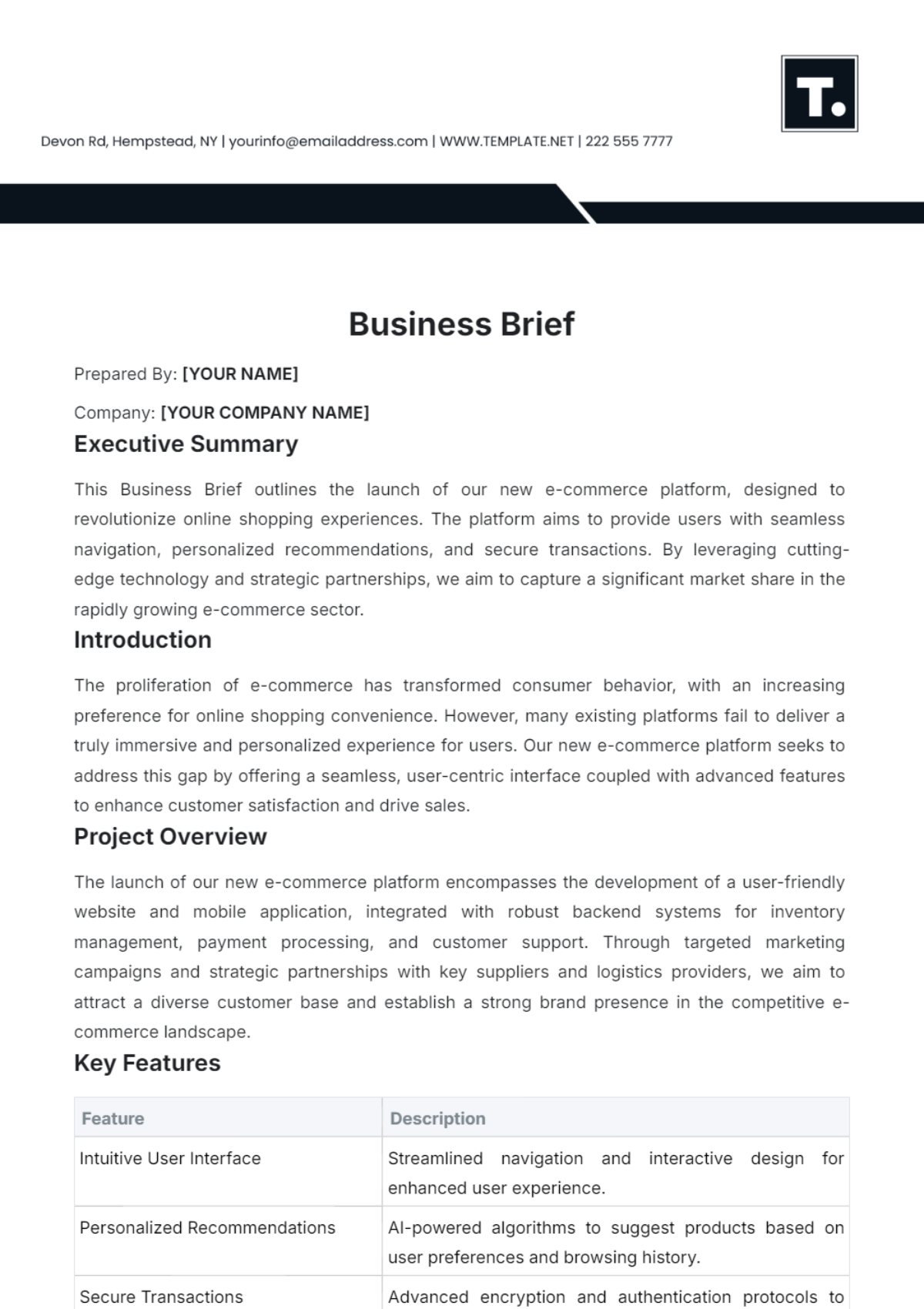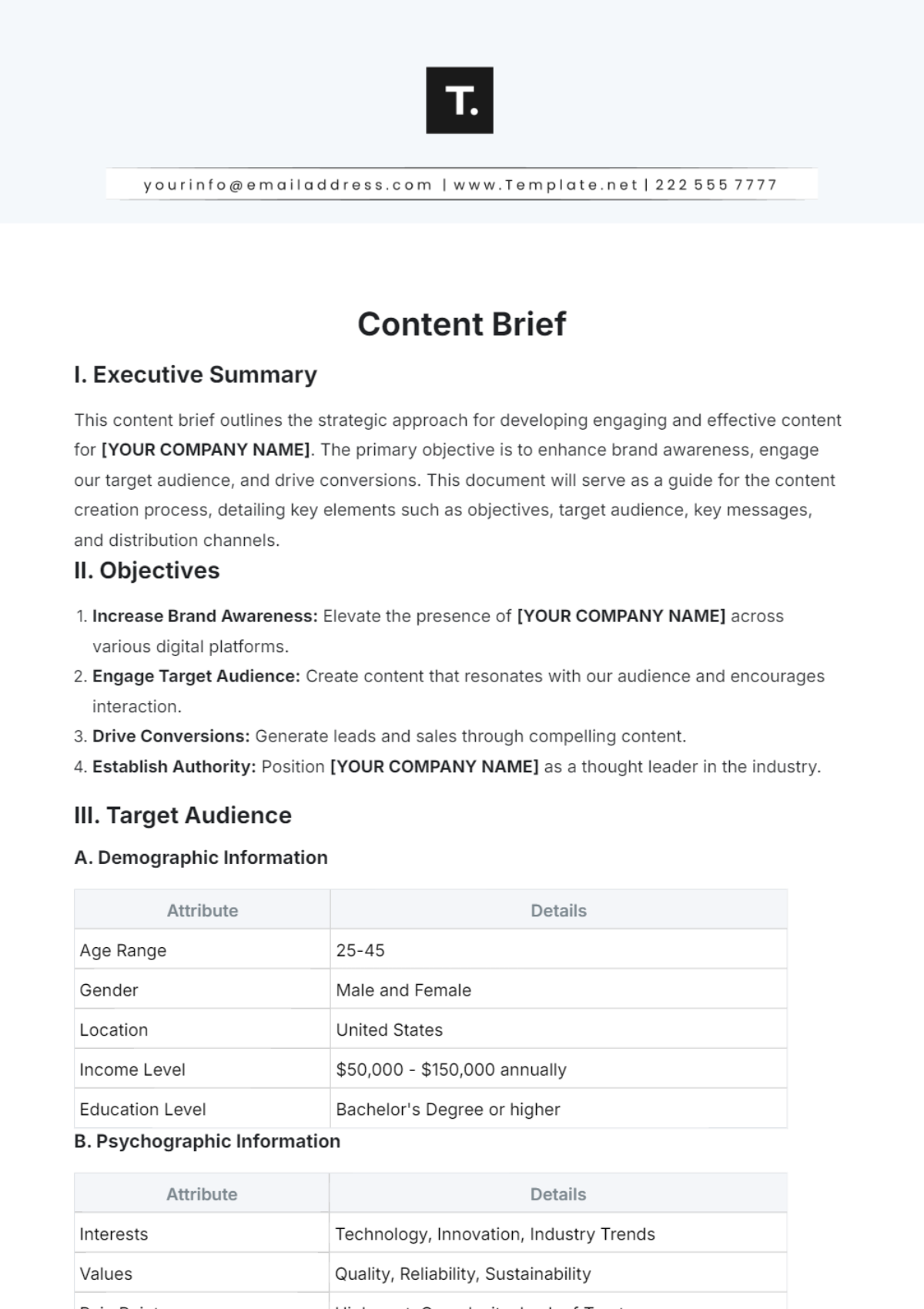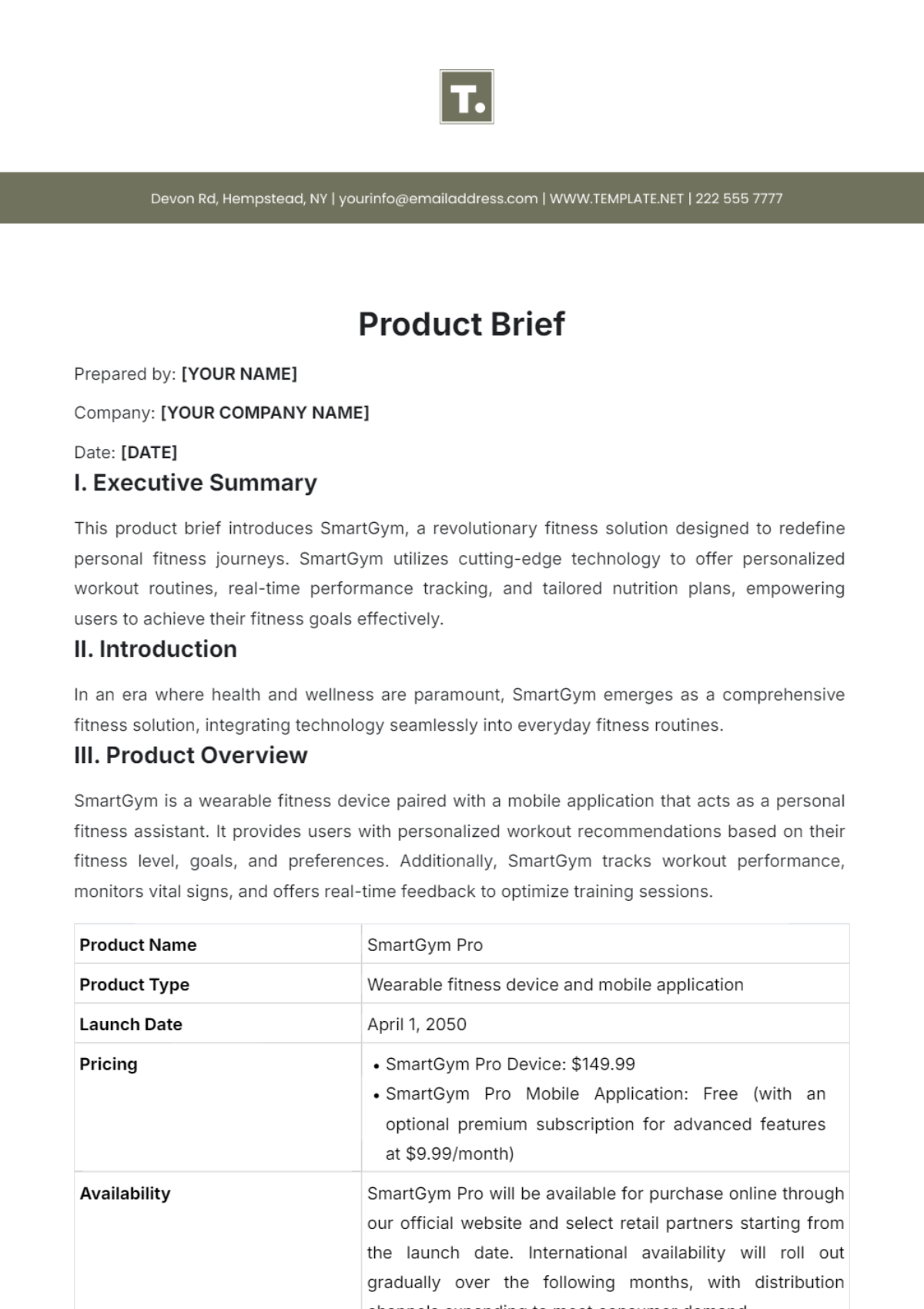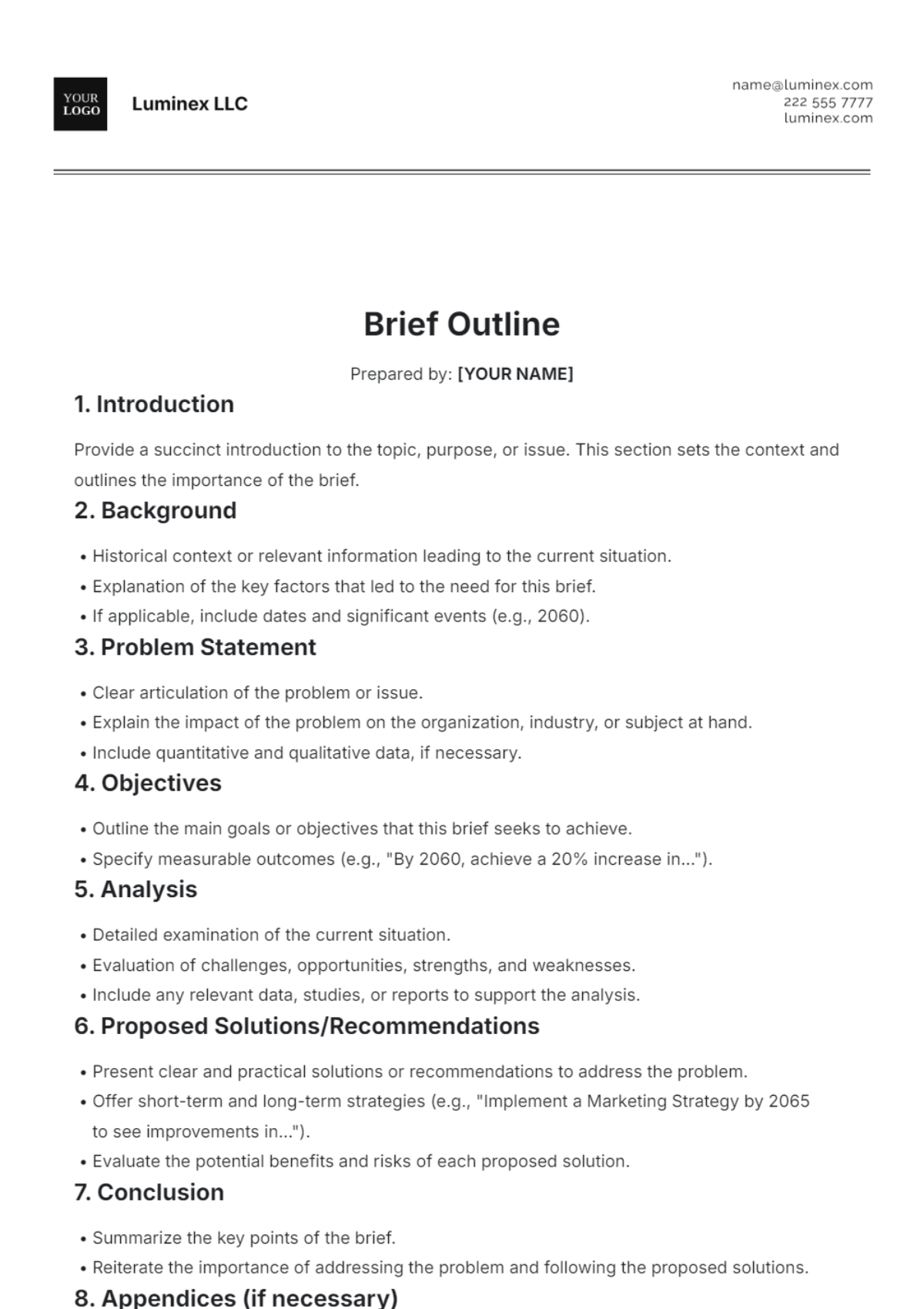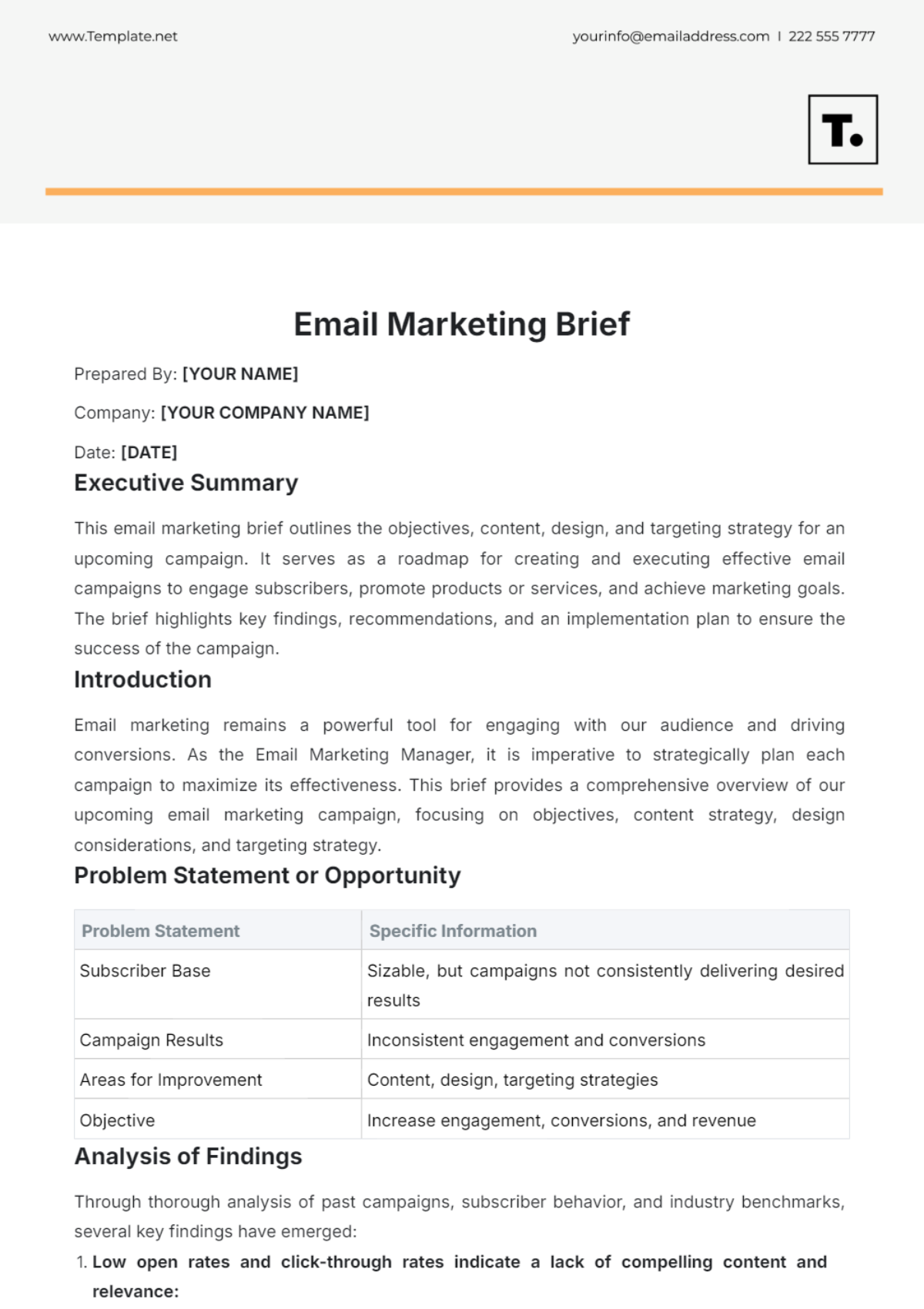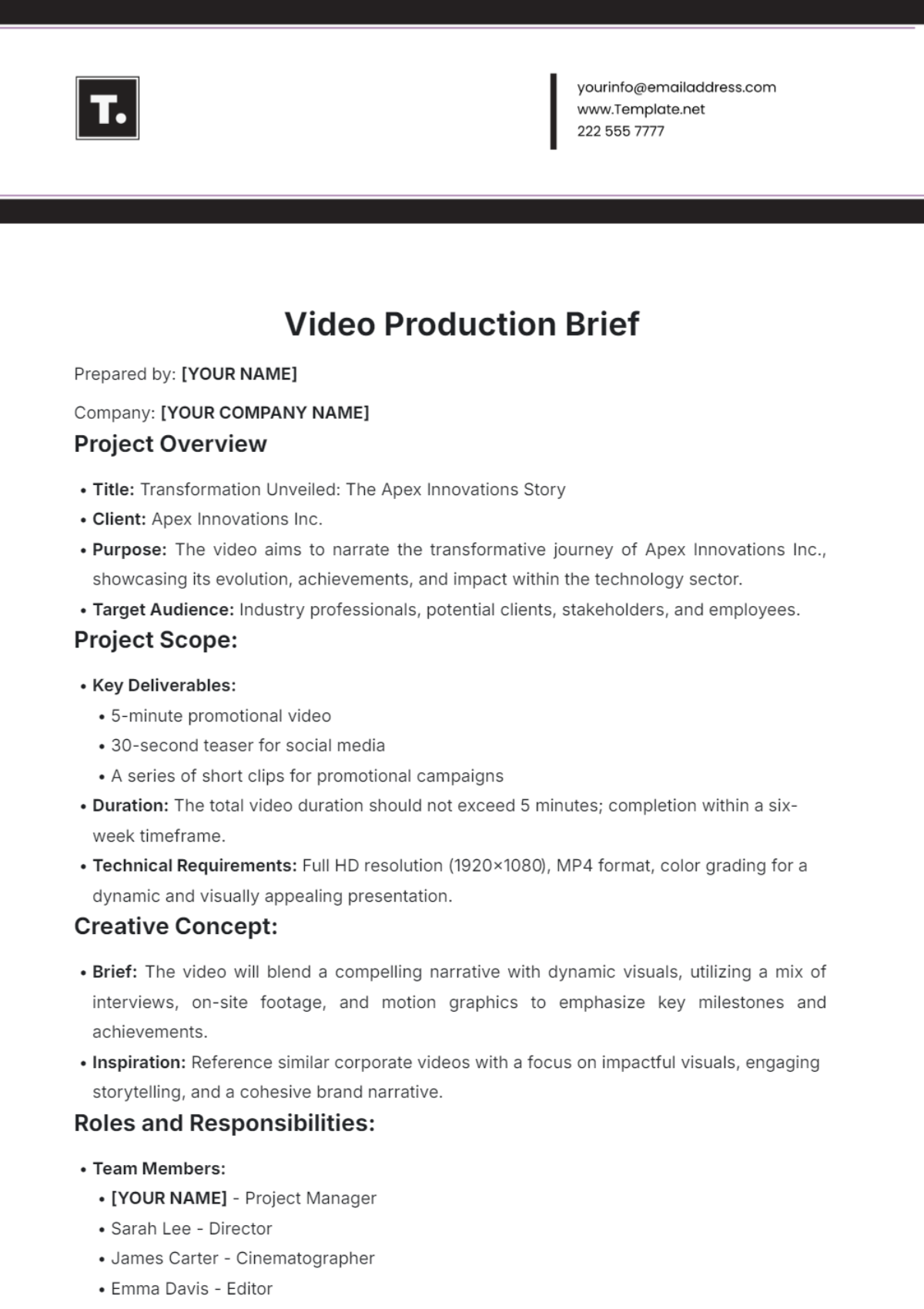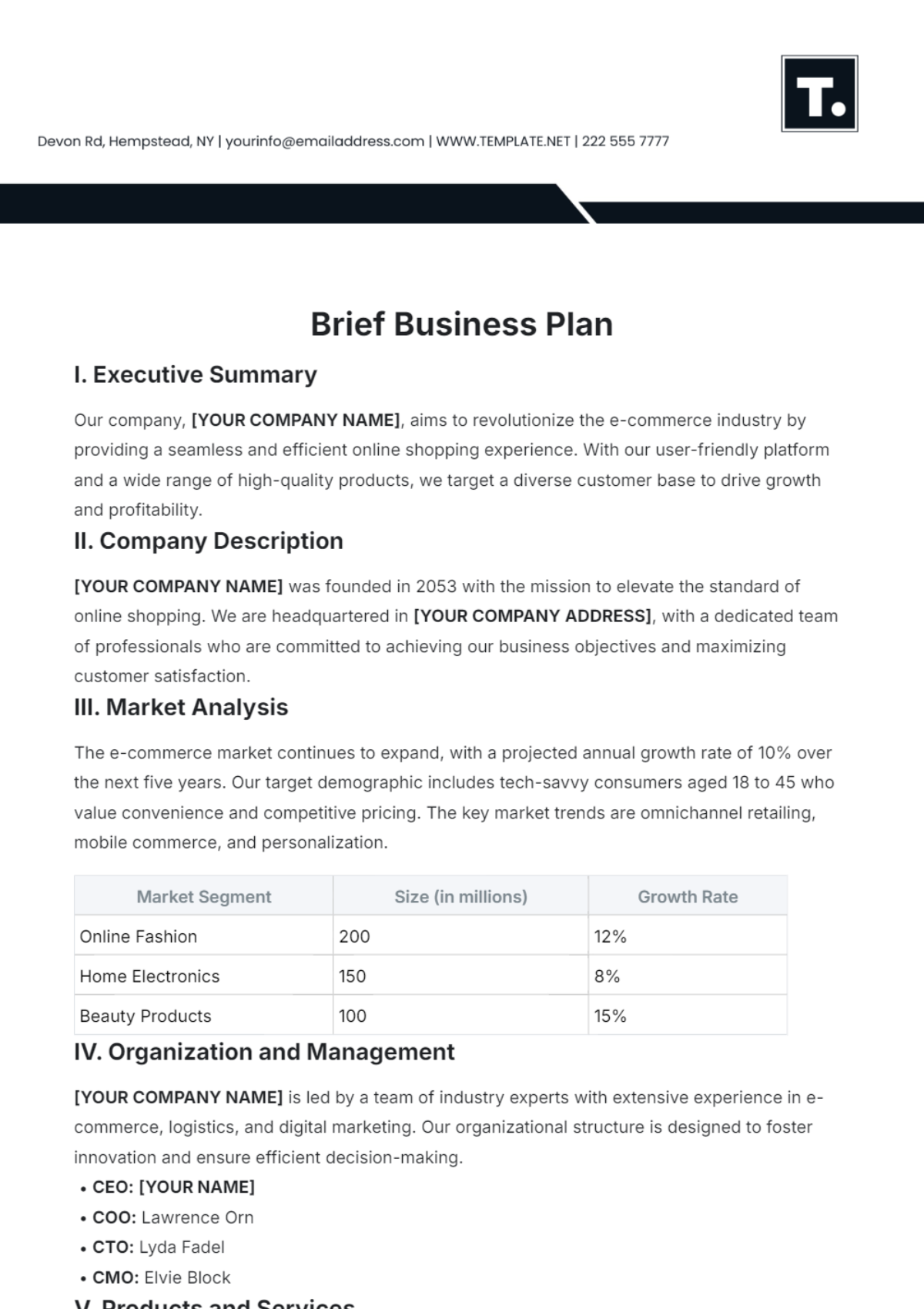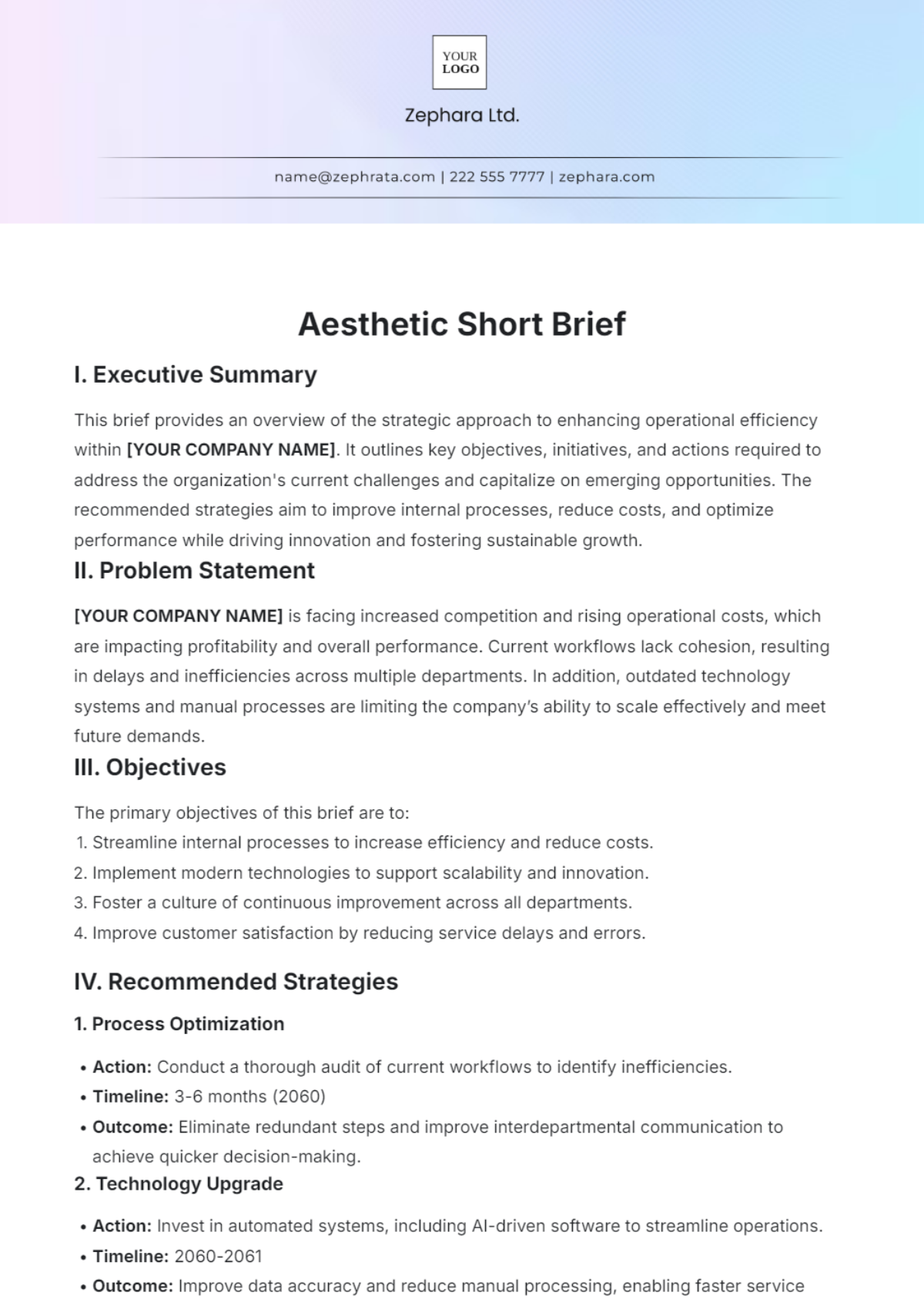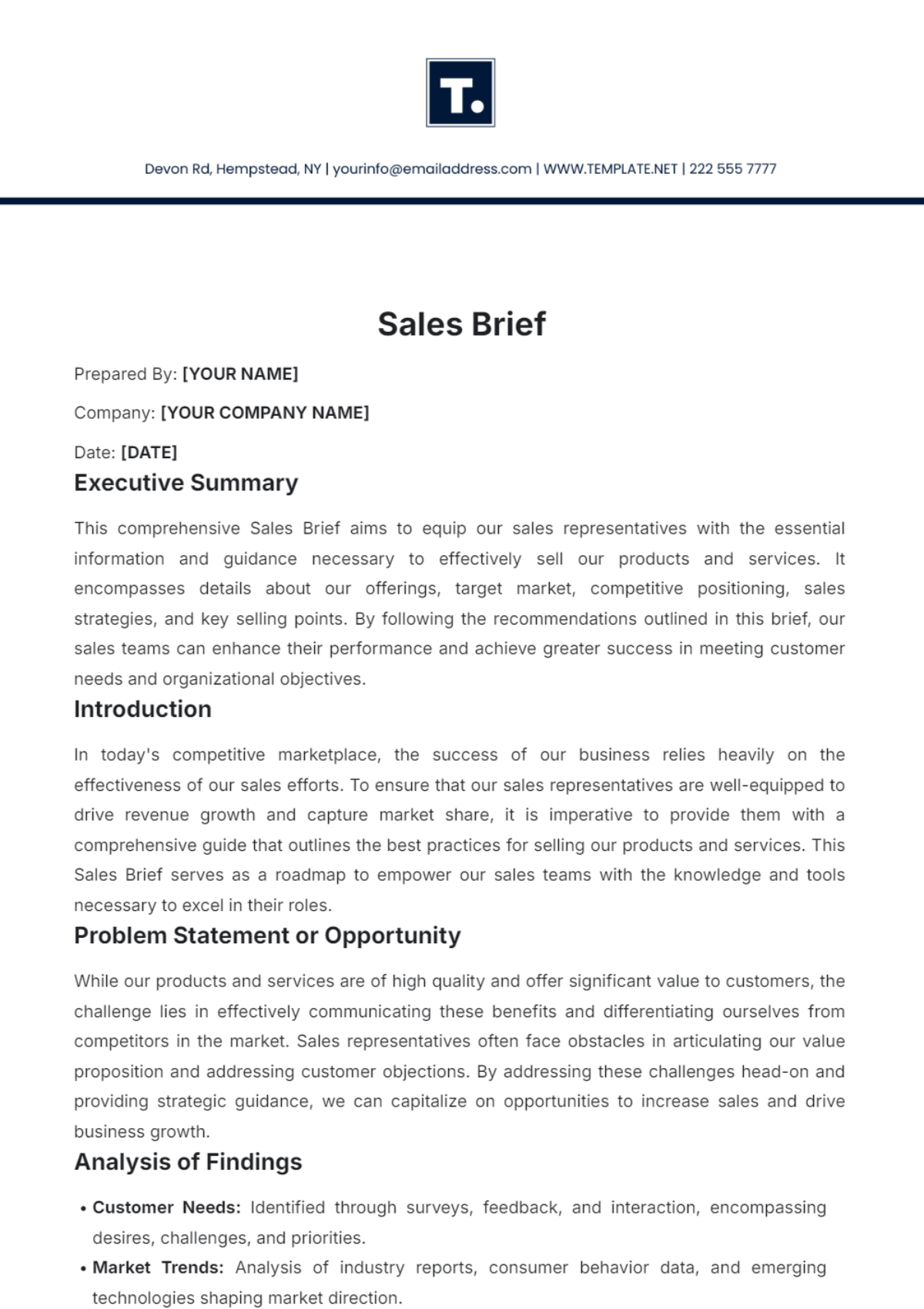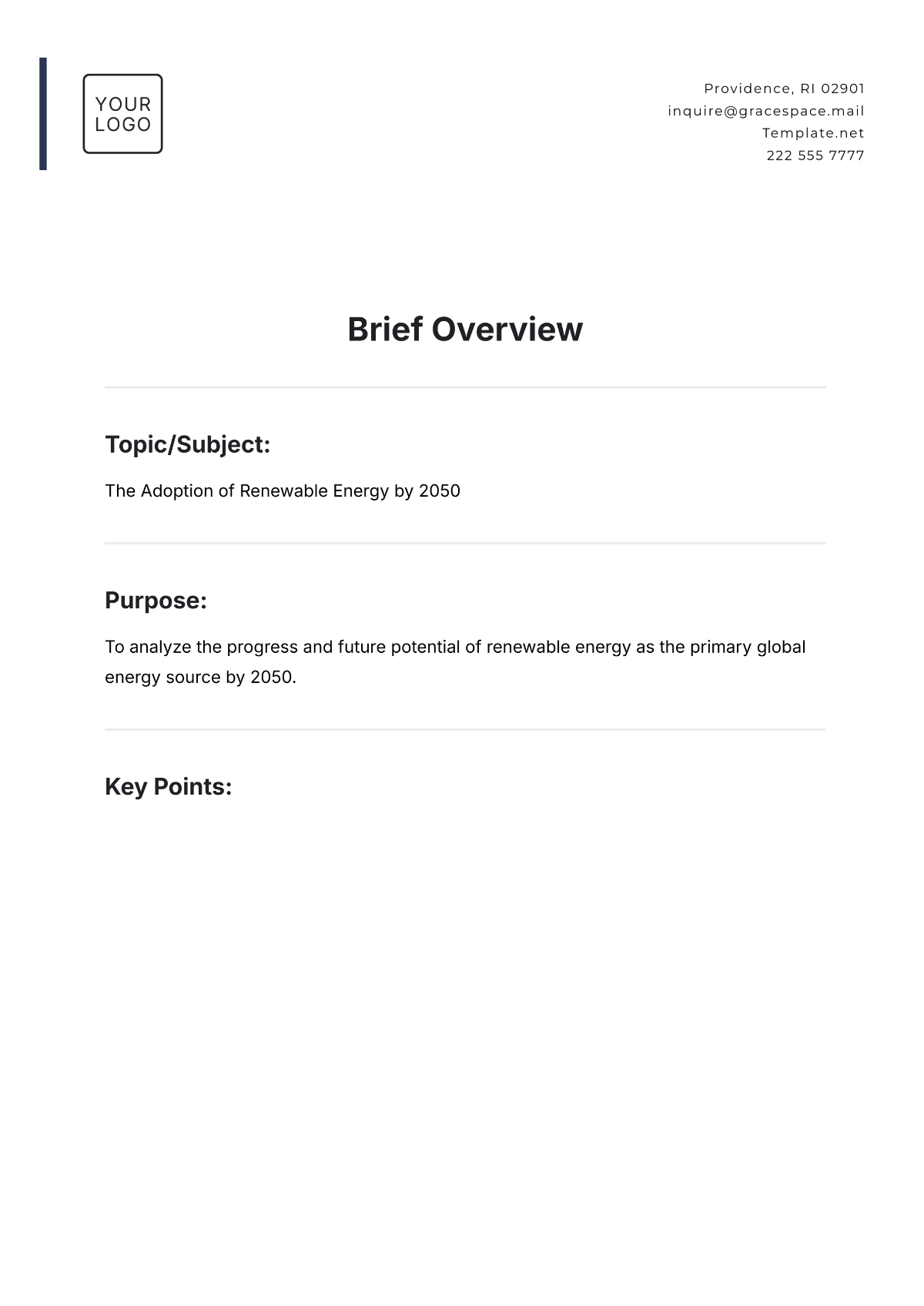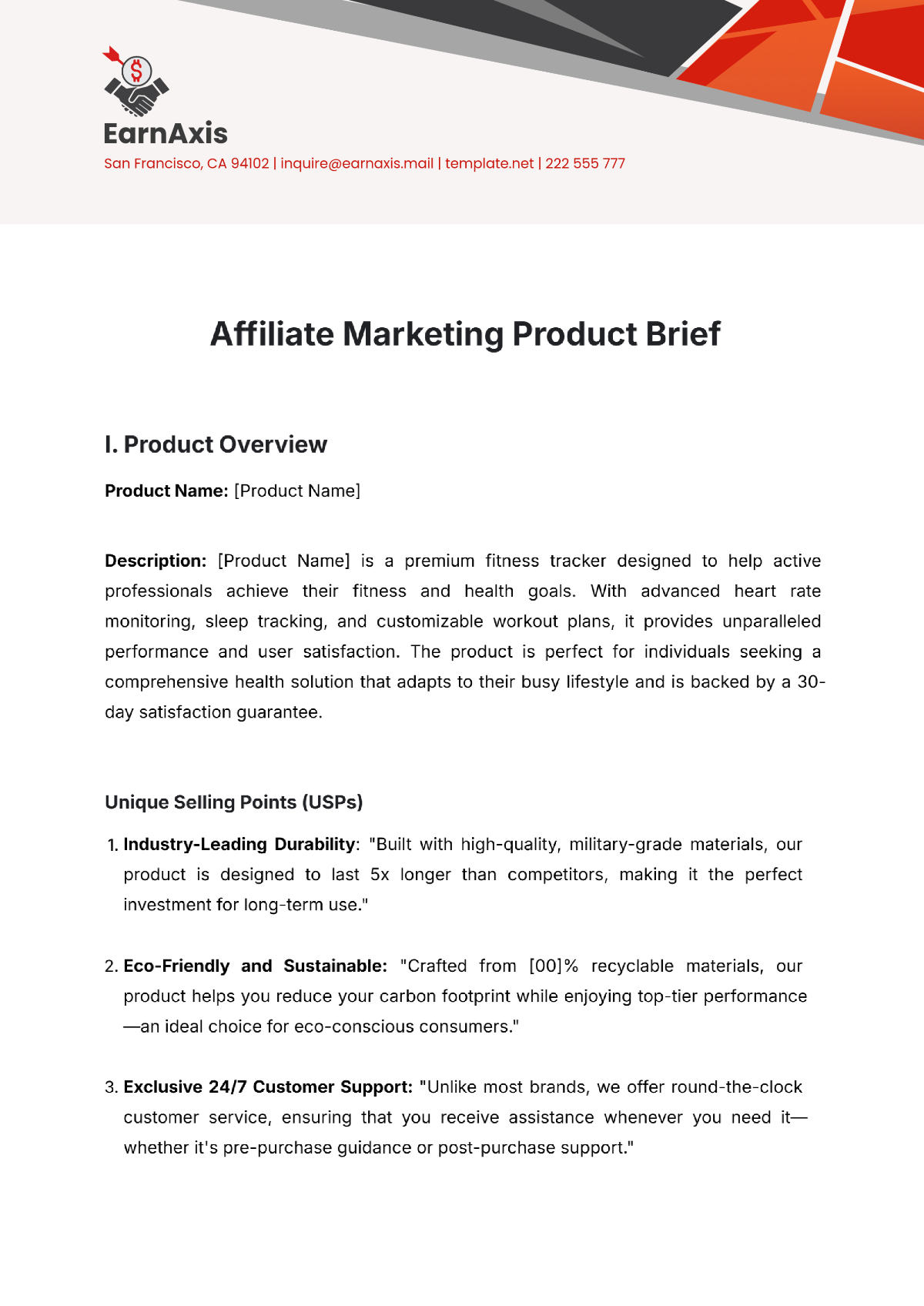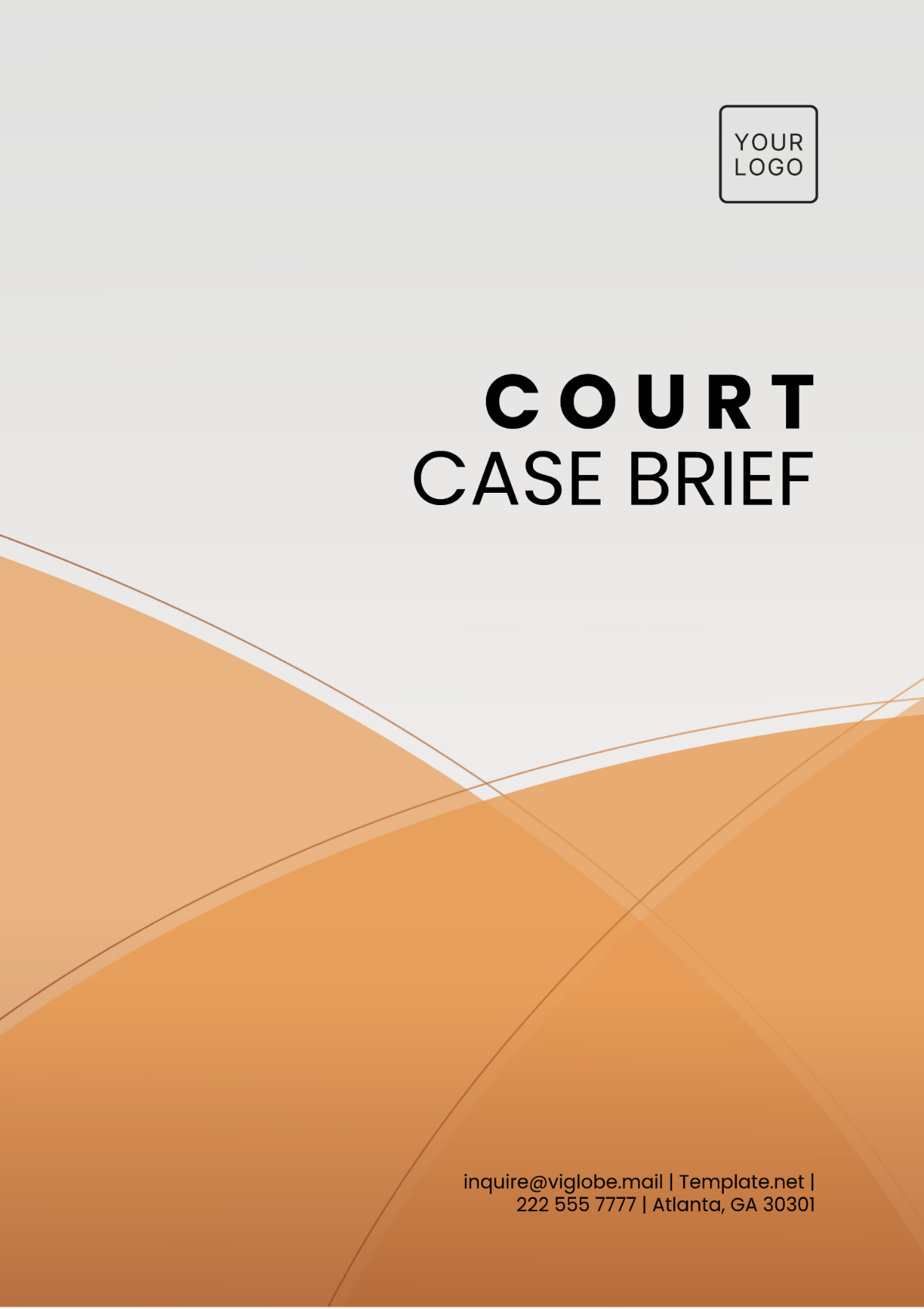Decision-Making Brief
Prepared by: [YOUR NAME]
Purpose:
The purpose of this decision brief is to provide a comprehensive overview and analysis of the adoption of renewable energy initiatives to inform the board of directors and facilitate a prompt and informed decision-making process.
Background:
The global push towards sustainable practices and the increasing concern over climate change has prompted our organization to explore opportunities for reducing our carbon footprint and transitioning towards renewable energy sources. With rising energy costs and regulatory pressures, the adoption of renewable energy initiatives presents a strategic opportunity to enhance our environmental stewardship while improving our long-term financial sustainability.
Key Points:
Key Points | Details |
|---|---|
Issue Identification | The decision revolves around whether to invest in renewable energy initiatives such as solar, wind, or hydroelectric power to meet our energy needs. |
Objectives | The primary objectives include reducing carbon emissions, lowering energy costs, and enhancing our corporate social responsibility profile. |
Options | We have identified three main options: a. Investing in solar energy systems for our facilities. b. Partnering with wind energy developers to purchase renewable energy credits. c. Exploring opportunities for on-site hydroelectric power generation. |
Analysis | Each option has been analyzed in terms of feasibility, cost-effectiveness, environmental impact, and alignment with organizational goals |
Recommendation | Based on the analysis, we recommend investing in solar energy systems for our facilities due to their proven track record, decreasing costs, and potential for significant long-term savings. |
Implementation Plan | We propose a phased implementation plan, starting with a pilot solar project at our headquarters, followed by expansion to other facilities based on feasibility assessments. |
Monitoring and Evaluation | We will establish key performance indicators (KPIs) to track energy consumption, cost savings, and carbon emissions reduction. Regular evaluations will ensure that we remain on track to meet our sustainability targets. |
Analysis:
The analysis of each option considered factors such as initial investment costs, ongoing operational expenses, scalability, availability of incentives or subsidies, and potential regulatory implications. Solar energy emerged as the most viable option, offering the best combination of economic and environmental benefits.
Recommendation:
We recommend proceeding with the implementation of solar energy systems for our facilities, as this option aligns most closely with our sustainability goals and provides the greatest potential for long-term cost savings.
Implementation Plan:
The implementation plan will involve engaging reputable solar energy providers, conducting site assessments, securing necessary permits and approvals, and overseeing the installation process. A dedicated project management team will be established to ensure timely execution and effective coordination.
Monitoring and Evaluation Plan:
Key performance indicators will include energy production levels, cost savings compared to traditional energy sources, and reductions in carbon emissions. Regular reviews will be conducted to assess progress and identify areas for optimization.
Conclusion:
Adopting renewable energy initiatives, starting with solar energy systems, represents a strategic opportunity for our organization to demonstrate environmental leadership, reduce operating costs, and secure our long-term sustainability. We urge the board to approve this proposal and support our efforts towards a more sustainable future.
Next Steps:
Upon approval, we will proceed with detailed project planning, vendor selection, and implementation of the pilot solar project. Regular updates will be provided to keep stakeholders informed of progress and milestones.
Attachments:
Financial projections for solar energy investment
Comparative analysis of renewable energy options
Site assessment reports for solar installation locations
Distribution:
This decision brief will be distributed to the board of directors, executive leadership team, and relevant department heads for review and consideration.
Confidentiality Note:
This information is confidential and intended solely for the recipients listed above. Any unauthorized distribution or disclosure is prohibited.
This decision brief is intended to facilitate informed decision-making and ensure the efficient allocation of resources to advance our sustainability objectives. Should you have any questions or require further clarification, please do not hesitate to contact the undersigned.
[Your Company Name]
[Your Company Email]
[Your Company Number]
